All Training Courses
-

Telecoms - Today and Tomorrow
This intensive one-day workshop provides delegates with a clear understanding of the technologies available for use within communications networks. It considers how technologies have evolved and then considers fixed-line and mobile voice and data networks. The full range of broadband technologies is introduced both for fixed and mobile access. Join our Telecoms Today and Tomorrow workshop to gain a comprehensive understanding of the technologies driving communication networks. This one-day course covers the evolution of technologies, fixed-line and mobile voice and data networks, and a range of broadband technologies for both fixed and mobile access. Whether you're a senior executive, manager, regulator, market analyst, marketer, or new industry recruit, this workshop is designed to benefit anyone in the communications industry seeking insight into converged communications markets. No technical background is required to participate in this workshop, making it accessible to a wide range of professionals. Topics covered include the operation of PSTN, circuit switching vs. packet switching, Intelligent Network principles, Value Added Services, mobile networks, IP data networks, Quality of Service in data networks, Next Generation Networks, Voice over IP challenges, core network evolution, and more. By the end of the workshop, you'll have a solid understanding of transmission technologies, optical fibre techniques, satellite telecommunication networks, GPS, broadcast radio and TV networks, and other key concepts shaping the future of telecommunications. Don't miss this opportunity to enhance your knowledge and stay ahead in the rapidly evolving telecom industry. Enroll in our Telecoms Today and Tomorrow workshop today and gain valuable insights into the technologies shaping the future of communication networks. Who would benefit Those involved in the communications industry who require an understanding of the wide range of technologies used within a converged communications market such as: senior executives; managers; regulators; market analysts; marketeers and new recruits to the industry. Prerequisites This workshop is designed for those with no technical background. Topic Areas Include Basic operation of the Public Switched Telephone Network (PSTN) Comparison of circuit switching and packet switching techniques Principles of an Intelligent Network (IN) Opportunities provided by Value Added Services (VAS) Basic operation of mobile networks and features of an IP data network Quality of Service (QoS) in data networks Fixed broadband access technologies and mobile networks Principles of Next Generation Networks (NGN) Challenges of operating Voice over IP (VoIP) Evolution of fixed and mobile core networks The IP Multimedia Subsystem (IMS) Transmission technologies including PDH and SDH Developments in optical fibre techniques Operation of satellite telecommunication networks The Global Positioning System (GPS) Principles of broadcast radio and TV networks
£980.00
-
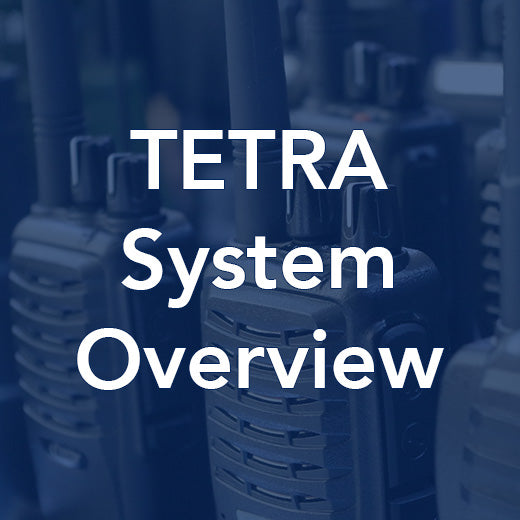
TETRA System Overview
The TETRA System Overview course provides a comprehensive understanding of TETRA technology, covering both TETRA 1 and TETRA 2 standards. Participants will learn about trunking principles, network planning, architecture, and technical details of the TETRA radio interface. Ideal for those working in PMR or PAMR industries, this course is designed for individuals who need to grasp the specifications and capabilities of TETRA technology. Familiarity with VHF or UHF mobile networks and a basic understanding of radio techniques are advantageous prerequisites for this training. The course covers a wide range of topics, including TETRA standards overview, trunked radio principles, traffic analysis, network planning, security, frequency allocations, and more. By the end of the course, participants will have a solid foundation in TETRA technology and its applications in professional mobile radio communications. Who would benefit Those working or involved in PMR or PAMR who need to understand TETRA technology, specification and capabilities. Prerequisites Familiarity with the architecture and general operation of typical VHF or UHF mobile networks is advantageous, and some understanding of radio techniques is useful. Topic Areas Include An overview of the TETRA standards TETRA 2 Trunked radio principles Traffic analysis TETRA services and interfaces Cellular principles Network planning TETRA security TETRA frequency allocations TETRA channels Network architecture TETRA user terminals The TETRA radio interface TETRA mobility management Direct Mode Operation (DMO)
POA: Private Course
-
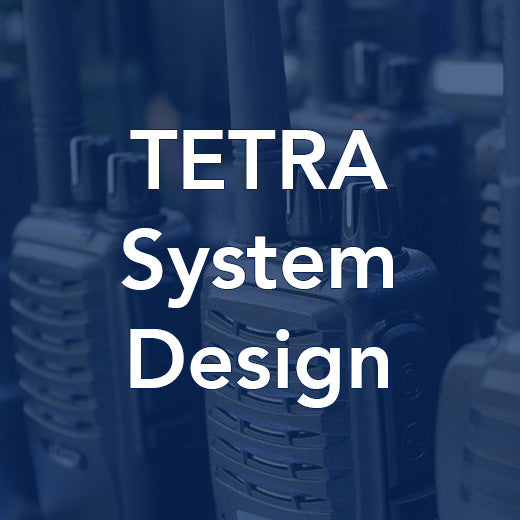
TETRA System Design
The TETRA System Design course is designed to provide engineers with the knowledge and skills needed to plan and configure TETRA networks effectively. Topics covered in the course include TETRA air interface structure, modulation and channel coding performance, receiver sensitivity, power control mechanisms, network broadcast channels, cell surveillance, and more. Participants will also engage in a TETRA system coverage and capacity design exercise to apply their learning in a practical setting. Ideal for engineers involved in radio system design, this course is suitable for those looking to gain a detailed understanding of planning, optimization, and configuration aspects of TETRA systems. Who would benefit Engineers working or involved in radio system design who require a detailed understanding of the planning, optimisation and configuration aspects of TETRA systems. Prerequisites Familiarity with the principles and techniques of designing a mobile radio system, or previous attendance on the Radio System Design course (RP1101). Topic Areas Include TETRA air interface structure – sub-slots, time slots and bursts TETRA modulation and channel coding performance Static and dynamic receiver sensitivity Dynamic channel adaptation Adaptive power control mechanisms and procedures Synchronisation and network broadcast channels Radio usable, radio relinquishable and radio improvable Random access procedures Cell surveillance, monitoring and scanning Undeclared, unannounced and announced cell reselection C1, C2, C3, C4 and C5 calculations Concentric, conforming and non-conforming carriers Normal, extended and shared control Capacity planning – circuit switched, packet switched, and control Fleet mapping Message, transmission and quasi-transmission trunking Carrier sharing options Configuring TETRA timers and energy economy mode Planning TETRA radio coverage Includes a TETRA system coverage and capacity design exercise.
POA: Private Course
-
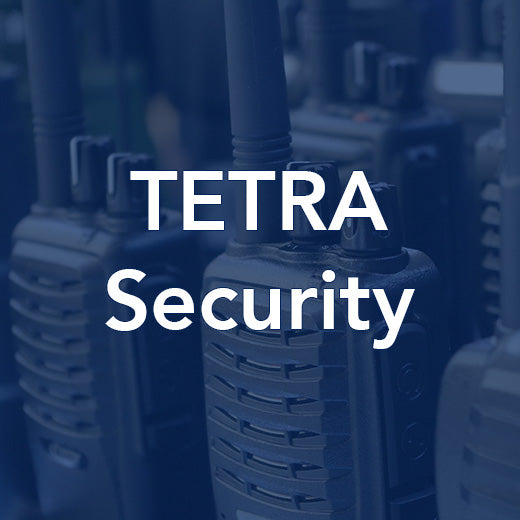
TETRA Security
This course provides TETRA design, specification and system engineers with the necessary information and skills required to plan and configure the security services available on TETRA networks. Our TETRA Security course is designed for TETRA design, specification, and system engineers looking to enhance their knowledge and skills in planning and configuring security services on TETRA networks. This 1-day provides a comprehensive overview of TETRA security fundamentals, classes, capabilities, attack vectors, authentication, confidentiality mechanisms, algorithms, and more. Engineers and system administrators involved in secure system design for TETRA systems will benefit greatly from this course. Participants are required to have a good understanding of TETRA radio system capabilities and target markets to fully engage with the material covered. By the end of the course, attendees will have a solid grasp of TETRA security protocols, OTAR (Over The Air Rekeying) protocols, end-to-end security, privacy protection, and the legal framework surrounding TETRA security. Join us for this informative and practical TETRA Security course to expand your expertise and ensure the security of TETRA networks in your organization. Who would benefit Engineers and system administrators working or involved in secure system design for TETRA systems. Prerequisites Good understanding of TETRA radio system capabilities and target markets. Topic Areas Include Security fundamentals TETRA security classes DMO and V+D capabilities Integration of TETRA security to TETRA V+D and DMO capabilities TETRA attack vectors TETRA authentication TETRA confidentiality mechanisms Algorithms Initialization and maintenance of secured path OTAR protocols OTAR algorithms End-to-end security Privacy protection Legal framework
POA: Private Course
-
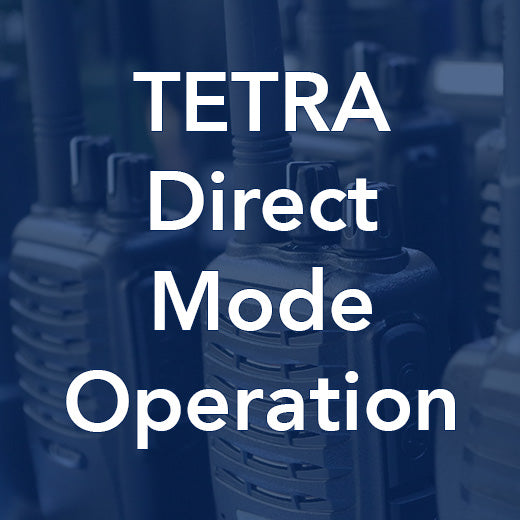
TETRA Direct Mode Operation
The TETRA Direct Mode Operation course offered by Wray Castle is designed for individuals working in TETRA systems administration, design, and specification. This course covers a range of topics that will enable participants to effectively plan and configure TETRA Direct Mode. Engineers involved in mobile radio system management and design will benefit from gaining a detailed understanding of the planning, optimization, and configuration aspects of TETRA Direct Mode Operation. Participants in this course will delve into various topic areas including an introduction to TETRA DMO, DMO air interface structure, advantages and disadvantages of DMO, DMO services, frequency-efficient operation, dual watch mobiles, dual-mode mobiles, DMO repeaters, DMO gateways, DMO gateway repeaters, radio coverage and co-existence issues, managed DMO, and DMO security. The course also includes a DMO 'coverage' design exercise to provide practical experience in applying the concepts learned. By completing the TETRA Direct Mode Operation course, participants will enhance their skills and knowledge in managing and designing mobile radio systems, ultimately improving their ability to effectively plan and configure TETRA Direct Mode for optimal performance. This course is ideal for individuals with familiarity with mobile radio system design principles or those who have attended the Radio System Design course previously. Who would benefit Engineers working or involved in mobile radio system management and design who require a detailed understanding of the planning, optimisation and configuration aspects of TETRA Direct Mode Operation. Prerequisites Familiarity with the principles and techniques of designing mobile radio systems, or previous attendance on the Radio System Design course (RP1101). Topic Areas Include Introduction to TETRA DMO DMO air interface structure Advantages and disadvantages of DMO DMO services Frequency efficient operation Dual watch mobiles Dual mode mobiles DMO repeaters DMO gateways DMO gateway repeaters Radio coverage and co-existence issues Managed DMO DMO security Includes a DMO 'coverage' design exercise.
POA: Private Course
-
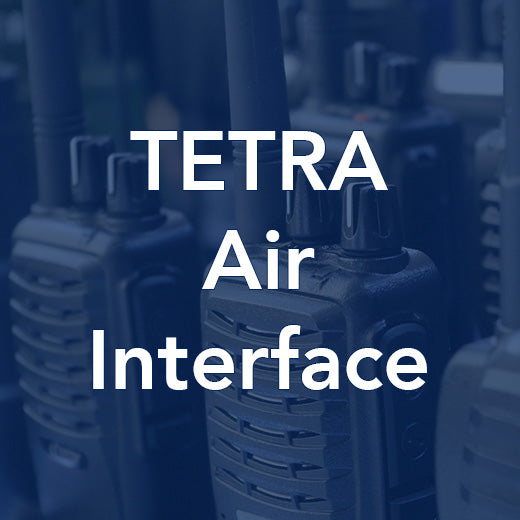
TETRA Air Interface
The TETRA Air Interface course offered by Wray Castle provides a comprehensive overview of the radio link between a TETRA mobile and base station. Covering V+D and Release 2 in detail, participants will gain a deep understanding of higher-layer signalling, protocol interactions, media processing, modulation, radio performance, and channel coding. This course is ideal for individuals working in PMR or PAMR who require a detailed knowledge of the TETRA air interface. Participants in this course will benefit from learning about TETRA identities, bearer services, teleservices, and supplementary services, as well as the TETRA air interface protocol stack, frequency allocation, channels, modulation schemes, MAC layer, LLC layer, SS and SDS protocols, MM protocol, authentication, ciphering, and Direct Mode Operation (DMO). By the end participants will have a strong foundation in TETRA air interface principles and protocols. For those looking to expand their knowledge of TETRA technology and enhance their skills in the field, the TETRA Air Interface course is a valuable opportunity. With a focus on practical applications and real-world scenarios, this course is designed to equip participants with the knowledge and expertise needed to excel in the PMR and PAMR industries. Who would benefit Those working or involved in PMR or PAMR requiring a detailed understanding of the TETRA air interface. Prerequisites Familiarity with the architecture and general operation of a TETRA network, or previous attendance on the TETRA System Overview course (TR1302). Topic Areas Include TETRA identities TETRA bearer services, teleservices and supplementary services TETRA air interface protocol stack TETRA frequency allocation TETRA channels TETRA modulation schemes - inc. π/4DQPSK and QAM Medium Access Control (MAC) layer Logical Link Control (LLC) layer Supplementary Service (SS) and Short Data Service (SDS) protocols TETRA Mobility Management (MM) protocol Authentication and ciphering TETRA Direct Mode Operation (DMO)
POA: Private Course
-
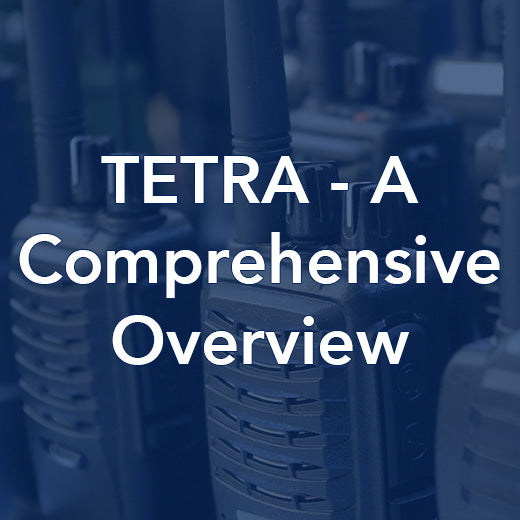
TETRA A Comprehensive Overview
This comprehensive TETRA course covers all aspects of a TETRA system, including the TETRA 1 and TETRA 2 standards. Participants will gain an understanding of trunking principles, service aspects, network planning, architecture, and technical details about the TETRA radio interface. This course is ideal for those working or involved in PMR or PAMR who need to understand TETRA technology, specifications, and capabilities. Participants will explore topics such as TETRA standards, trunked radio principles, traffic analysis, TETRA services and interfaces, cellular principles, network planning, TETRA security, frequency allocations, channels, network architecture, user terminals, radio interface, mobility management, and Direct Mode Operation (DMO). Familiarity with the architecture and general operation of typical VHF or UHF mobile networks is advantageous, and some understanding of radio techniques is useful for this course. Who would benefit Those working or involved in PMR or PAMR who need to understand TETRA technology, specification and capabilities. Prerequisites Familiarity with the architecture and general operation of typical VHF or UHF mobile networks is advantageous, and some understanding of radio techniques is useful. Topic Areas Include An overview of the TETRA standards TETRA 2 Trunked radio principles Traffic analysis TETRA services and interfaces Cellular principles Network planning TETRA security TETRA frequency allocations TETRA channels Network architecture TETRA user terminals The TETRA radio interface TETRA mobility management Direct Mode Operation (DMO)
POA: Private Course
-
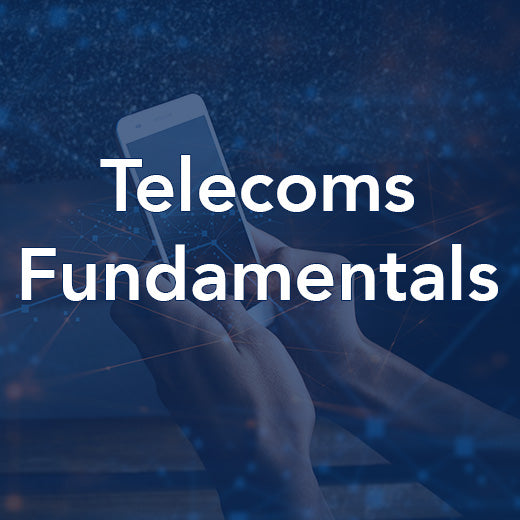
Telecoms Fundamentals
Course Code: WR1701 Course Summary This course has been designed for those who do not have a technical background and are new to the telecommunications industry or those who are currently working in the sector. The historical background to telecommunications is described and the technologies, abbreviations and techniques that are employed are explained. During the course, emphasis is placed on learning by group work, discussion and exercises that enhance the understanding of networks and their operation. Use of laptops, tablets and smartphones with Internet access are employed to explore emerging technologies in various areas. Videos and images of equipment and networks are used to explore the many applications of telecommunication in the modern world. Topic Areas Include Defining Telecoms and the Nature of Information A Historical Background to the Telecom Network Digital Fixed Telecom Networks Data Networks Mobile Networks and Wi-Fi Broadband and Emerging Networks
POA: Private Course
-
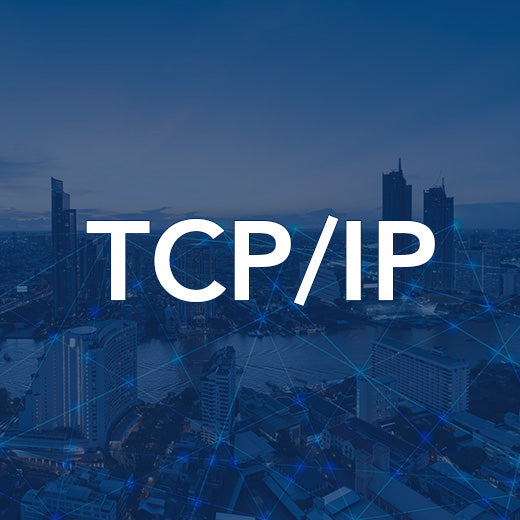
TCP/IP
Course Code: QS2501 Course Summary Knowledge of TCP/IP and its operation has become a fundamental requirement for anyone involved in IP networks. This detailed and exciting course takes delegates through TCP/IP principles, applications and protocols, enabling them to work confidently in this changing environment. Who would benefit This course is aimed at engineers who are looking to get started in TCP/IP family of protocols. The course is designed to provide engineers with a foundation into the world of IP and Ethernet in particular, although other major protocols such as MPLS will also be discussed. Prerequisites Some prior knowledge of packet-switched network operations and the Internet is beneficial, but the ability to comprehend technical matters and an interest in Internet protocols is sufficient. Topic Areas Include The Internet TCP/IP features Ethernet Spanning Tree Point-to-Point Protocol (PPP) Multi Protocol Label Switching (MPLS) Internet Protocol (IP) IP version 6 Address Resolution Protocol (ARP) Interior Gateway Protocols (IGP) Internet Control Messaging Protocol (ICMP) User Datagram Protocol (UDP) Transmission Control Protocol (TCP) Dynamic Host Configuration Protocol (DHCP) Domain Name System (DNS) Remote Authentication Dial In User Service (RADIUS)
POA: Private Course
-
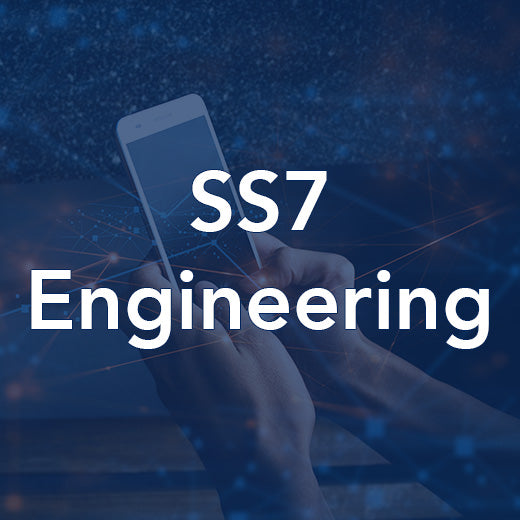
SS7 Engineering
Course Code: QS2500 Course Summary SS7 is a key element in the control plane of fixed and mobile networks and in Intelligent Network scenarios. It facilitates communication between SS7 hosted ‘applications’ enabling end-to-end service delivery. This course provides a comprehensive description of SS7 protocols, functions and procedures. Who would benefit Those who need a detailed understanding of the implementation and functions of SS7. Prerequisites An understanding of the PSTN architecture and circuit- and packet-switched concepts, together with a working knowledge of the OSI Model and primary rate (E1/T1) bearers. Topic Areas Include Overview of signalling and signalling system SS7 architecture: SP, STPs, Links, Link Sets, Routes and Route Sets Point Codes functions and formats Message Transfer Part (MTP) levels 1, 2 and 3 MTP error control, routing and loadsharing principles and user identification The ISDN User Part call control and supplementary services Signalling Connection Control Part (SCCP) functions and services SCCP connectionless and connection-oriented services applications SCCP Global Title routing and segmentation function Transaction Capabilities (TCAP) protocol stack and usage scenarios TCAP Component Sublayer and Transaction Sublayer Component-handling and transaction-handling functions and procedures The Dialogue Portion and application context negotiation SS7 applications in Intelligent Networks and Mobile Networks Introduction to SS7 over IP Includes practical exercises analysing MTP, SCCP, ISUP and TCAP signalling traces.
POA: Private Course
-

Software Defined Networking (SDN) Training Course
Our Software Defined Networking (SDN) training course is designed to provide a comprehensive understanding of SDN, including its drivers, architecture, deployment considerations, and case studies. This 1-day course consists of 2 live online sessions, running from 9:00 AM to 12:30 PM, making it convenient for busy professionals to attend. The course covers a range of topics, including SDN drivers for change, evolution and virtualization, SDN goals, SDN architecture, OpenFlow, Netconf and YANG, and more. Participants will gain insights into SDN deployment, network function virtualization (NFV), and SDN in transport networks. A key case study on Google’s G Scale Network will also be explored to provide real-world examples of SDN implementation. Ideal for network, software, and IT engineers, as well as managers and consultants, this course requires delegates to have a basic understanding of IP networking and routing principles. By the end of the training, participants will have a solid foundation in SDN and be equipped to apply their knowledge in practical settings. Who would benefit This course is suitable for those who need a solid base understand of SDN, network virtualisation and the deployment considerations associated with SDN, including network, software and IT engineers, as well as managers and consultants. Prerequisites Delegates should have experience or an understanding of the principles or IP networking and routing. Topic Areas Include SDN Drivers for Change Evolution and Virtualization X as a Service in Layers SDN Goals Introducing SDN Architecture SDN Split Architecture SDN Traffic Engineering Network Functions Virtualization (NFV) and SDN SDN Deployment SDN Architecture SDN Summary SDN Vision Case Study – Google OpenFlow OpenFlow Examples Netconf and YANG SDN to Control Transport Networks Case Study – Mininet
POA: Private Course
-

Softswitching and VoIP
Course Code: IP2001 Course Summary Covering Voice over IP (VoIP) services in fixed and mobile, Next Generation Networks (NGNs) and all IP-based networks, the course also includes VoIP concepts, supporting architectures, interworking with circuit-switched networks together with QoS issues. Who would benefit Those requiring an overview of how voice may be integrated into IP networks. Prerequisites Familiarity with IP and intranet operation is beneficial. This can be obtained from attendance on the TCP/IP (QS2501) course. Topic Areas Include Supporting VoIP in fixed and mobile NGNs Protocols for VoIP Voice quality, quality measurements and quality reports Session Initiation Protocol (SIP) Session Description Protocol (SDP) SIP Peer-to-Peer operation SIP architecture User Agent clients and servers Registrar, Proxy and Redirect Servers Back-to-Back User Agents SIP Requests, Responses and Header analysis Demonstrations with analysis of Registration/Authentication and VoIP session-handling procedures ENUM, NAT, STUN and TURN H.248/Megaco Includes practical demonstrations.
POA: Private Course
-
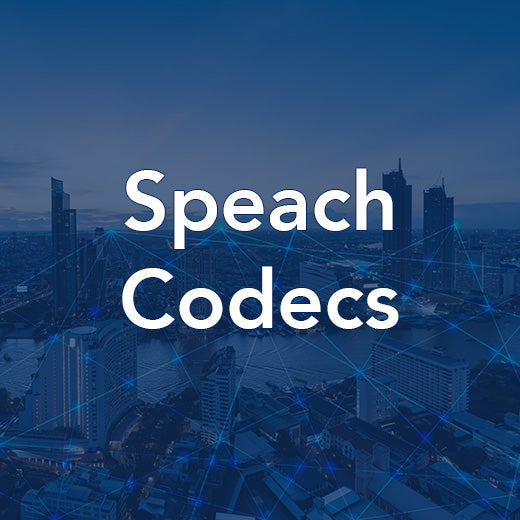
Speech Codecs
This course looks at different types of voice coder used in GSM and UMTS networks and then investigates its basic operation looking at CELP and VSELP. The course progresses to look at the functionality of the AMR voice codec and suggest its benefits and looks at Source Controlled Rate (SCR) operation finishes by looking at lost frame substitution. Our Speech Codecs Training Course delves into the world of voice coding in GSM and UMTS networks, exploring the basic operations of CELP and VSELP voice coders. Participants will gain an understanding of the AMR voice codec, its benefits, and Source Controlled Rate (SCR) operation, as well as lost frame substitution. This course is designed for individuals seeking to optimize voice performance in modern telecommunication networks through the use of different speech codecs. Ideal for those with an interest in mobile networks, this course requires no prerequisites and is suitable for anyone looking to enhance their knowledge of key voice coders used in telecommunications. Our expert instructors will guide participants through topics such as Linear Predictive Coders (LPCs), the GSM Vocoder, RPE, and the subjective division of codec parameters. By the end of this course, attendees will have a comprehensive understanding of voice coding technologies and their impact on network voice quality. Join usto expand your knowledge of speech codecs and their role in optimizing voice transmission in telecommunication networks. Gain valuable insights into the functionality of different voice coders, their benefits, and the operation of Source Controlled Rate (SCR) and lost frame substitution. Don't miss this opportunity to enhance your skills and stay ahead in the ever-evolving world of telecommunications. Who would benefit Attendees of this course should require an understanding of the key voice coders used in modern telecommunication networks, as well as their development and operation. This course will be of particular relevance to those interested in the performance of different speech codecs for optimising voice through the network. Prerequisites Delegates should have experience or an interest in mobile networks otherwise there are no prerequisites for this course. Topic Areas Include Voice Coding Linear Predictive Coders (LPCs) The GSM Vocoder Vocoder Action RPE Vocoder Output GSM Coder and Decoder Subjective Division of Codec Parameters Categorization The GSM Half-Rate Speech Coder Code Excited Linear Predictor (CELP) GSM Enhanced Full Rate Speech Coder Adaptive Multi-Rate (AMR) Voice Codec General Description Source Controlled Rate (SCR) Operation Lost Frame Substitution
POA: Private Course
-

Small Cells Engineering Overview
This course provides a detailed overview of the technologies and techniques employed by Small Cell deployments. It describes the drivers for small cells in a heterogeneous network and identifies the various interfaces, protocols, security functions and network architectures. The features of Self Organising Networks (SON) are described and small cell backhaul techniques are explored. The course concludes with an overview of the future evolution of small cell technologies. This 2-day Small Cells Engineering Overview training course offered by Wray Castle provides a comprehensive understanding of the technologies and techniques used in Small Cell deployments. The course covers the drivers for small cells in a heterogeneous network, various interfaces, protocols, security functions, and network architectures. Participants will also learn about Self Organising Networks (SON), small cell backhaul techniques, and the future evolution of small cell technologies. Ideal for engineering and technical management professionals seeking a technical overview of protocols, architectures, standards, and configuration considerations related to small cell technologies, this course does not require prior cellular telecoms experience. Topics covered include Mobile Network Generations and Evolution, Small Cell Applications, SON Functions, Small Cell Backhaul Requirements, Security Techniques, and LTE-Advanced Small Cells, among others. Enroll in this live online training course consisting of 4 sessions from 0900-1230 to enhance your knowledge and skills in Small Cell technologies. Stay ahead in the rapidly evolving telecom industry with Wray Castle's expert-led training sessions. Who would benefit This course is suitable for engineering and technical management staff who require a technical overview of the protocols, architectures, standards and configuration considerations related to small cell technologies. Prerequisites Attendance on this course assumes basic cellular telecoms experience but this is not a necessity. Topic Areas Include Mobile Network Generations and Evolution Small Cells Definition The Small Cells Forum Small Cell Applications Associated Technologies and Developments Small Cell Network Architectures Heterogeneous Networks 3G HNB, 4G HeNB Architecture Closed Subscriber Groups Small Cell network architecture, components and interfaces Small cells in the enterprise SON (Self Organizing Networks) Small Cell SON Functions Automatic small cell initialization and configuration Small Cell Backhaul Requirements Wireline and Wireless Backhaul Solutions Broadband-based Backhaul Carrier Ethernet Security, Synchronization, QoS and Reliability Techniques Technology Roadmap for Small Cells LTE-Advanced Small Cells Interworking with Wi-Fi Future developments
POA: Private Course
-
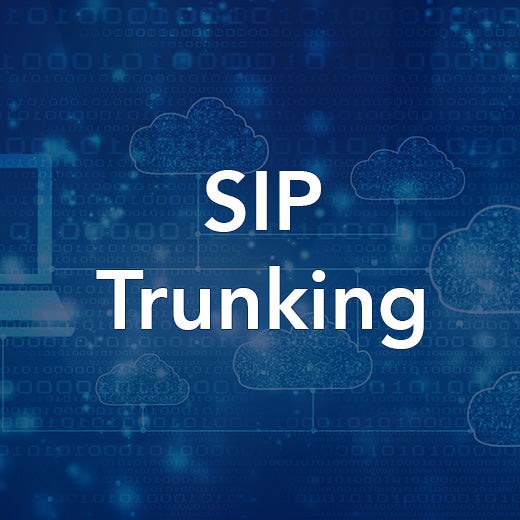
SIP Trunking
This half-day course uses real business cases throughout to discuss the lead up to the employment of SIP Trunking. It includes an overview of carrier scenarios in consideration of all IP infrastructures; a brief look at the standards and a detailed discussion of design considerations, including authentication; transcoding; session management; SIP interworking; pitfalls and security considerations. SIP Trunking is becoming increasingly popular in the telecommunications industry, and understanding its importance and implementation is crucial for engineers and professionals in the field. Wray Castle's half-day training course, with 1 live online session, delves into the intricacies of SIP Trunking through real business cases. From discussing carrier scenarios to exploring technical standards and design considerations, this course provides a comprehensive overview of SIP Trunking. Engineers looking to enhance their knowledge of SIP Trunking and its market forces will benefit greatly from this course. With a focus on SIP Connect standards and design options from a carrier/telco perspective, attendees will gain valuable insights into the drivers behind the growing use of SIP Trunking. While there are no specific prerequisites for this course, a basic understanding of SIP and a keen interest in telecommunications technology are recommended for optimal learning outcomes. Don't miss this opportunity to expand your expertise in SIP Trunking with Wray Castle's specialized training course. Who would benefit This course is for engineers who wish to understand the market forces behind the growing use of SIP Trunking, explained through real-life examples. Attendees should also have an interest in the standard governing SIP Trunking – SIP Connect, as well as the design options available from a carrier/telco’s perspective. Prerequisites Although there are no specific prerequisites for this course, delegates should have a basic understanding of SIP and a keen interest in understanding the drivers behind SIP Trunking. Topic Areas Include Why SIP trunking? Customer scenarios Carrier scenarios Technical Standards Design options
POA: Private Course
-
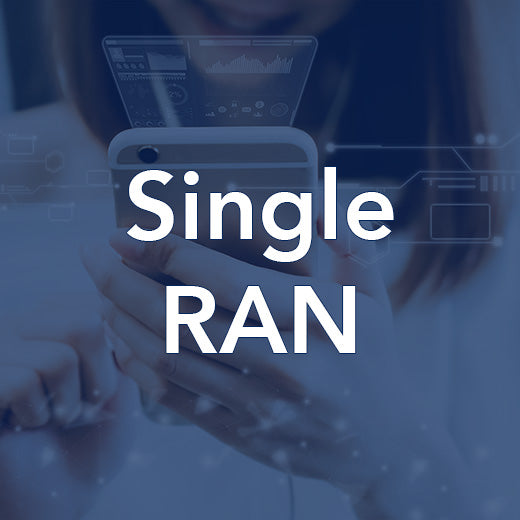
Single RAN
The advent of technologies such as SDR (Software Defined Radio) and packet-based backhaul have enabled vendors and operators to develop ‘Single RAN’ concepts in which MSR (Multi-Standard Radio) base stations are capable of managing 2G, 3G and even 4G cells from within a single base station unit. Shared IP-based backhaul via an Ethernet packet network further allows for the traditional multi-RAN concept to be abandoned as Single RAN architectures begin to be deployed. This course provides a detailed overview of the Single RAN concept, of the technologies and techniques that enable it and of the architectures and deployment options that have made it a reality. Our Single RAN Training Course is designed for engineers, managers, and other personnel who want to gain a technical understanding of the Single RAN concept and the technologies that enable it. This course covers topics such as defining the Single RAN, potential benefits and dangers of implementation, MSR base stations, software-defined radio, multi-standard band sharing, and more. Participants will also learn about backhaul networks and architectures for Single RAN, multi-RAT operation, flexible core network connectivity, and network area coordination. By taking this course, you will acquire the knowledge and skills needed to understand the Single RAN architecture and deployment options that have made it a reality. Whether you are new to the telecommunications industry or looking to enhance your existing knowledge, this training course will provide you with a comprehensive overview of Single RAN concepts and technologies. Don't miss this opportunity to stay ahead in the rapidly evolving world of telecommunications. Sign up for our Single RAN Training Course today and take your career to the next level. Who would benefit This course is designed for engineers, managers and other personnel who have a need to acquire a technical overview of the Single RAN concept and of the technologies and techniques that enable it. Prerequisites An understanding of 2G, 3G and/or 4G access network architectures and technologies would be an advantage as would a basic knowledge of IP. Topic Areas Include Defining the single RAN Potential benefits and dangers of single RAN implementation MSR base stations Software defined radio Multi-standard band sharing OBSAI and CPRI Localized versus distributed cell sites MSR base Station sharing Potential RF issues Single RAN architecture Backhaul networks and architectures for single RAN Multi-RAT operation Flexible core network connectivity Network area coordination RSFP index and idle mode mobility Connected mode mobility IP flow mobility Multi RAN architecture Single RAN architecture Single RAN implementation example
POA: Private Course
-
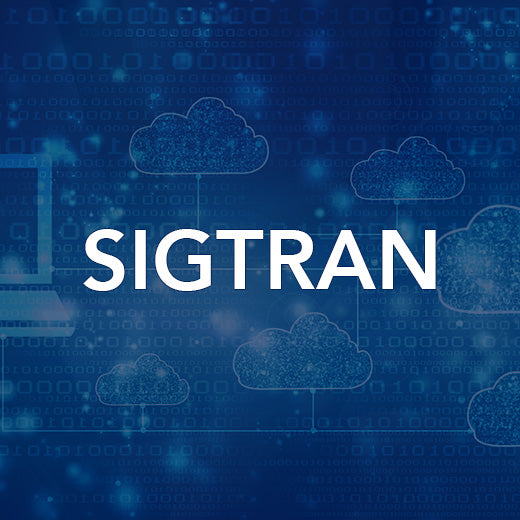
SIGTRAN
The drive towards all-IP networking necessitates the transport of SS7 protocols over an IP domain. This course provides a thorough explanation of how this is achieved using the SIGTRAN ‘toolkit’. Our SIGTRAN training course is designed to provide a comprehensive understanding of how SS7 protocols are transported over IP networks using the SIGTRAN toolkit. As the industry moves towards all-IP networking, this course is essential for individuals who need to grasp the concept of SS7 and the available solutions for transporting SS7 signalling over IP-based networks. Participants will benefit from learning about various topic areas including the importance of SIGTRAN, potential SS7 and IP interworking scenarios, SIGTRAN protocols, SCTP architecture and operation, MTP2 Peer-to-Peer Adaptation (M2PA) layer, MTP3 User Adaptation (M3UA) layer, and more. With a focus on practical applications, attendees will also gain hands-on experience in analyzing SIGTRAN operation using Wireshark. Whether you are a telecommunications professional looking to enhance your skills or a network engineer seeking to understand the complexities of SS7 signalling over IP networks, our SIGTRAN training course is the ideal choice for you. Who would benefit Those requiring an understanding of the need for SS7 and the solutions available for transporting SS7 signalling over IP-based networks. Prerequisites Familiarity with the PSTN architecture and SS7 signalling protocols, particularly MTP and SCCP, together with some knowledge of the TCP/IP protocol suite. Topic Areas Include Why SIGTRAN? Potential SS7 and IP interworking scenarios SIGTRAN protocols SIGTRAN in circuit-related and non-circuit-related signalling scenarios Stream Control Transmission Protocol (SCTP) SCTP architecture, operation, procedures and terminology MTP2 Peer-to-Peer Adaptation (M2PA) layer MTP3 User Adaptation (M3UA) layer MTP2 User Adaptation (M2UA) layer SCCP User Adaptation (SUA) layer Adaptation layer architecture, operations, procedures and resilience models Analysis of SIGTRAN operation using Wireshark
POA: Private Course
-
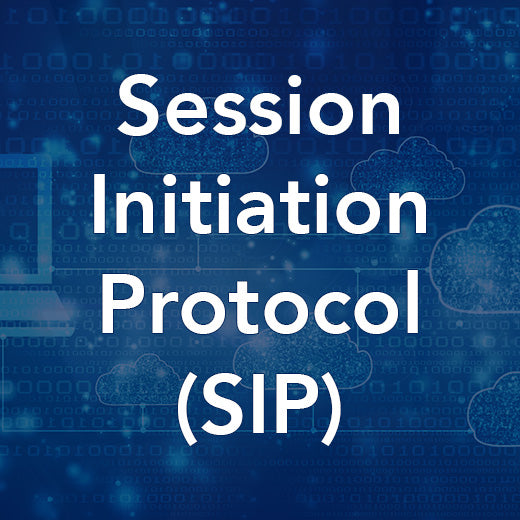
Session Initiation Protocol (SIP)
Our Session Initiation Protocol (SIP) training course offers a comprehensive understanding of SIP, Session Description Protocol (SDP), and Real-time Transport Protocol (RTP) and their crucial roles in establishing multimedia communications over IP-based networks. This 1-day course delves into SIP architectures, various SIP server types, and the intricate functions of SIP, SDP, and RTP in multimedia communication setups. Ideal for individuals seeking an in-depth comprehension of SIP and related protocols, this course covers essential topics such as SIP requests and responses, SIP user agents, dialogues, transactions, SIP architecture, operation procedures, SIP URIs, Tel URIs, and more. Participants will also explore SIP registration and session control, SIP and SDP messages, header fields, routing techniques, SIP server roles (Proxy, Redirect, B2BUA, Forking), SDP offer/answer model, interworking with the PSTN, and practical case studies using Wireshark analysis. Enhance your knowledge of SIP and related protocols with our expert-led training sessions, designed to equip you with the skills and insights needed to navigate the complexities of multimedia communications over IP networks. Join us for this intensive course and gain a competitive edge in the ever-evolving world of telecommunications. Who would benefit Those requiring a detailed understanding of the operation of the SIP and related protocols. Prerequisites A basic understanding of IP, UDP and TCP is an advantage. Topic Areas Include The role of SIP, SDP and RTP in multimedia communications Locating users in a SIP environment SIP requests and responses SIP user agents, dialogues and transactions SIP architecture, operation and procedures SIP URIs and Tel URIs Analysis of SIP registration and session control Analysis of SIP and SDP messages and header fields Request and response routing techniques Route and record route headers The roles and functions of SIP Servers: Proxy, Redirect, B2BUA and Forking SDP offer/answer model SIP-I and interworking with the PSTN Registration and session establishment Case studies using Wireshark analysis
POA: Private Course
-
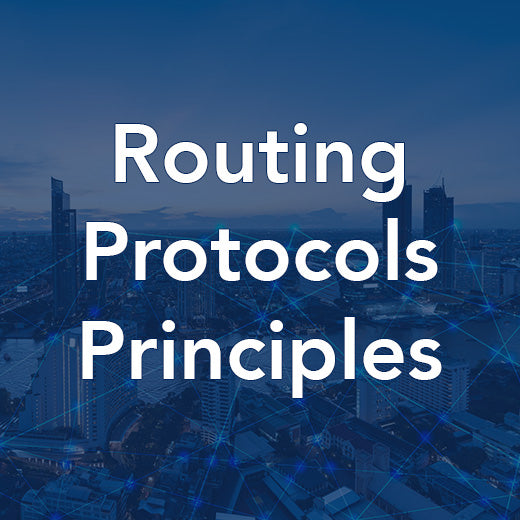
Routing Protocol Principles
In this 2-day online training course, participants will delve into the principles of routing protocols, focusing on Open Shortest Path First (OSPF) and Border Gateway Protocol (BGP). This course, with the code IP1306, is designed to provide a solid foundation in these two key routing protocols essential for network engineers. Ideal for network engineers seeking to enhance their knowledge of link state protocols like OSPF and the Path Vector Algorithm used in BGP, this course is a prerequisite for those considering diving into Multiprotocol Label Switching (MPLS). Participants are required to have a basic understanding of IP and networking, which can be obtained through attending Wray Castle's courses 'Internetworking, Ethernet LANs and VLANs Principles – IP1304' and 'IP Addressing and Internet Protocols Principles – IP1305'. Throughout the training, participants will cover a range of topic areas including the purpose of routing, route table management, routing traffic, interior and exterior gateway protocols, OSPF concepts and configuration, as well as Border Gateway Protocol Version 4 (BGP4) and MPLS VPN operation. By the end of the course, participants will have a comprehensive understanding of these routing protocols and be better equipped to handle complex network configurations. Topic Areas Include The purpose of routing The route table Routing traffic Interior and exterior gateway protocols Routing Information Protocol (RIP) v1 OSPF concepts OSPF configuration Interior (IGP) versus Exterior (EGP) routing Border Gateway Protocol Version 4 (BGP4) MPLS VPN operation
POA: Private Course
-
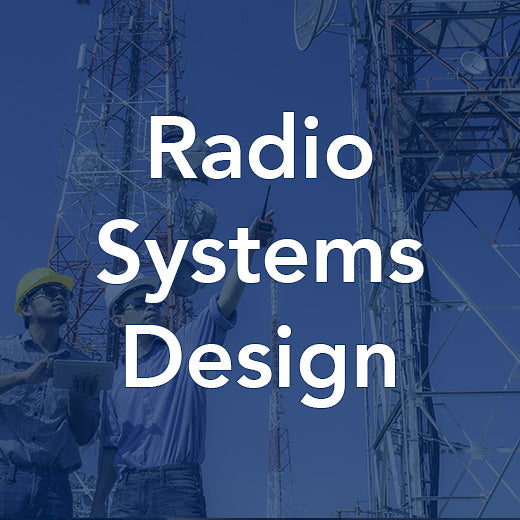
Radio System Design
Course Code: RP1101 Course Summary The course covers the essential information and practical skills needed to begin designing mobile and fixed radio systems. Who would benefit Those involved in the specification, design, planning, management and maintenance of mobile and fixed radio systems. Prerequisites A good knowledge of radio principles, a background in telecommunications engineering, or attendance on the Radio Principles course (RP1301). Topic Areas Include Spectrum regulation – ITU, CEPT, ECC, Ofcom Calculating gain, loss and power levels – the decibel Calculating noise levels in radio systems Interpreting antenna and feeder specifications Radio propagation mechanisms Radio propagation modelling Production of radio path profiles Calculating power budgets Calculating fade margins Diversity systems Planning coverage and capacity for mobile systems Radio site engineering Design a mobile radio system Design a fixed radio link Includes practical exercises throughout, including a system design exercise.
POA: Private Course
-

Radio Spectrum
Our Radio Spectrum Training Course is designed to provide participants with a comprehensive understanding of spectrum management and the technical characteristics of radio propagation. Over the course of 2 day participants will delve into topics such as the socio-economic benefits of spectrum, the role of ITU-R in spectrum management, and the driving forces behind the demand for spectrum. In addition to exploring mobile communication technologies and other spectrum users, participants will learn how different administrations are addressing the 'capacity crunch' and determining spectral requirements for IMT. This course is ideal for professionals in the telecommunications industry looking to enhance their knowledge of radio spectrum and stay current with the latest developments in spectrum management. By enrolling in our Radio Spectrum Training Course, participants will gain valuable insights into the complexities of spectrum management and the challenges facing the telecommunications industry. With a focus on practical applications and real-world examples, this course will equip participants with the knowledge and skills needed to navigate the evolving landscape of radio spectrum and make informed decisions in their professional roles. Course Contents What is Spectrum? Socio-Economic benefits of Spectrum What is Spectrum Management? Introduction to ITU-R Technical Characteristics of Radio Propagation Mobile Communication Technologies What is Driving the Demand for Spectrum? Other Spectrum Users How Other Administrations are Tackling the ‘Capacity Crunch’ Determining Spectral Requirements for IMT
POA: Private Course
-
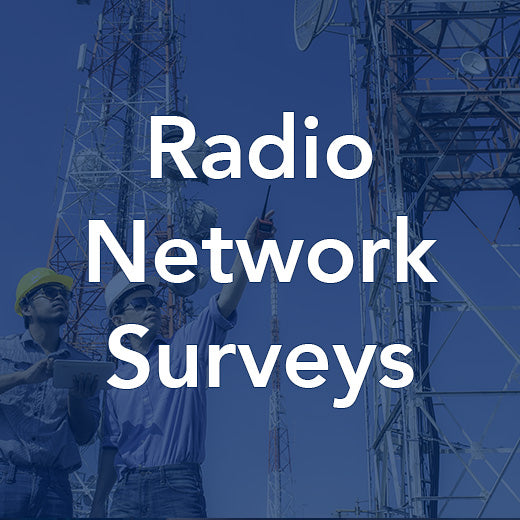
Radio Network Surveys
To carry out meaningful radio surveys of GSM, UMTS, LTE and Wi-Fi networks demands a knowledge of how those networks operate and the key radio metrics. These are discussed in detail along with the types of surveys and information they can reveal. The course is focused on the practical issues of performing surveys backed up with demonstrations. The equipment and software used on this course includes the Rohde & Schwarz TSMA radio scanner, ROMES and NESTOR software as well as the QualiPoc, handheld survey tool. Our Radio Network Surveys Training Course is designed to provide participants with the knowledge and practical skills needed to conduct meaningful surveys of GSM, UMTS, LTE, and Wi-Fi networks. This course covers key radio metrics, types of surveys, and the equipment and software used in conducting surveys, including the Rohde & Schwarz TSMA radio scanner, ROMES and NESTOR software, and the QualiPoc handheld survey tool. Whether you are involved in coverage optimization, crime scene investigation, alibi verification, intelligence gathering, or performance analysis, this course will help you create a comprehensive picture of the cellular radio network environment. Participants will learn about cellular radio principles, spectrum and identities, radio measurements and metrics, cell selection and reselections for GSM, UMTS, and LTE, location reporting in idle mode, mobility in Wi-Fi, connected mode activity for mobile devices, tools for radio surveys, spectrum occupancy, coverage surveys, base station position estimation, and practical guidance for surveying. While previous attendance on GSM, UMTS, LTE, and Wi-Fi courses may be advantageous, it is not essential to benefit from this training. Who would benefit Those that need to create a ‘picture’ of the cellular radio network environment to aid coverage optimization, crime scene investigation, alibi verification, intelligence gathering and performance analysis. This course features the Rohde & Schwarz TSMA radio scanner in conjunction with the ROMES and NESTOR software as well as a drive test tool. Prerequisites Previous attendance on GSM, UMTS, LTE and Wi-Fi courses would be advantageous but not essential. Topic Areas Include Cellular radio principles Cellular radio spectrum and identities Wi-Fi radio spectrum and identities Radio measurements and metrics Cell selection and reselections for GSM, UMTS and LTE Location reporting in idle mode Mobility in Wi-Fi Connected mode activity for mobile devices Tools for radio surveys Spectrum occupancy Coverage surveys Base station position estimation Practical guidance for surveying
POA: Private Course
-
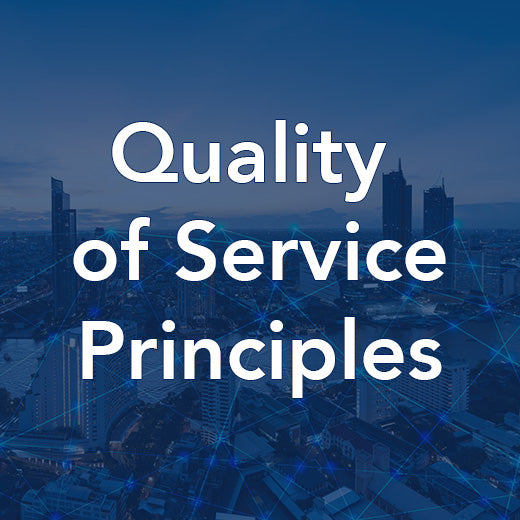
Quality of Service Principles
This 1-day Quality of Service Principles training course offered by Wray Castle provides a comprehensive overview of QoS in converged telecommunications networks. Participants will delve into the intricacies of QoS in ATM, MPLS, Ethernet, and IP networks, as well as explore the mechanisms used in VoIP and IPTV. This fast-paced course is ideal for engineers involved in planning, designing, implementing, supporting, and managing services over modern IP networks who need a solid understanding of QoS mechanisms. The course covers a range of topic areas including Traffic Management, IntServ and DiffServ Operation, Queue Management, Speech Quality, Video/Audio Quality, IP over ATM QoS, QoS in MPLS Networks, Ethernet Switch QoS Fundamentals, and Backhaul Traffic Profile. Participants are required to have a good understanding of IP networks, which can be obtained by attending Wray Castle's 'Routing Protocol Principles – IP1306' and 'Multi Protocol Label Switching – IP1307' courses. Enhance your knowledge and skills in QoS principles with this insightful training course. Improve your expertise in Quality of Service principles with Wray Castle's 1-day training course. Gain valuable insights into QoS mechanisms in converged telecommunications networks, including ATM, MPLS, Ethernet, and IP networks, as well as VoIP and IPTV. This course is designed for engineers involved in various aspects of modern IP networks who need to grasp the essentials of QoS. Explore topics such as Traffic Management, IntServ and DiffServ Operation, Queue Management, Speech Quality, Video/Audio Quality, IP over ATM QoS, QoS in MPLS Networks, Ethernet Switch QoS Fundamentals, and Backhaul Traffic Profile. Prior knowledge of IP networks is recommended, which can be acquired through attending Wray Castle's related courses. Elevate your skills and understanding of QoS principles with this informative training opportunity. Who would benefit All engineers involved in planning, designing, implementing, supporting and managing services over modern IP networks and need to understand the QoS mechanisms at their disposal. Prerequisites A good understanding of IP networks which can be obtained by attending our Wray Castle courses ‘Routing Protocol Principles – IP1306’ and our ‘Multi Protocol Label Switching – IP1307’. Topic Areas Include What is QoS? Traffic Management IntServ and DiffServ Operation Queue Management Speech Quality Video/Audio Quality IP over ATM QoS QoS in MPLS Networks Ethernet Switch QoS Fundamentals Backhaul Traffic Profile
POA: Private Course
-
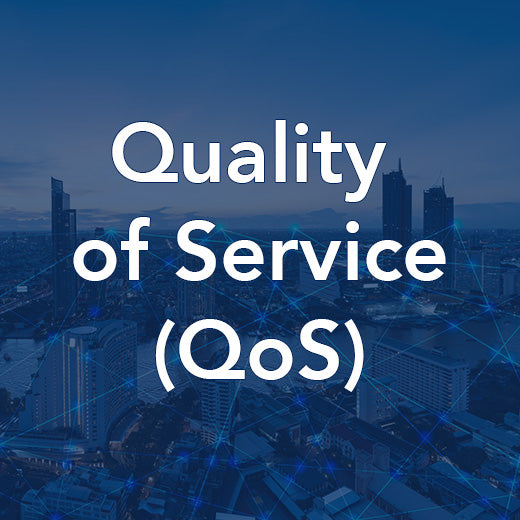
Quality of Service (QoS)
Telecommunication networks have evolved to offer a rich mix of multimedia and voice services. Many such services depend on the Internet Protocol (IP) for their operation and networks need to be equipped and engineered to cope with changed and changing requirements. The Quality of Service (QoS) offered to users is a vital aspect of IP network engineering and is pertinent to all IP network types. This detailed Wray Castle course provides network engineers with an in-depth study that covers all the principal aspects of IP QoS in part through theory but also by means of at least 9 practical exercises. The practical exercises will take the delegates through queue management techniques associated with switches and then routers. These exercises will include looking at QoS markings and then look at priority queueing, custom queueing, fair and weighted queueing as well as class-based routing. Exercises also cover RSVP and traffic shaping. In order to aid the exercises a set of pods will be used where each pod consists of 3 routers and 2 switches all the ancillary cables and a laptop will be provided although it is recommended that delegates bring their own laptop to aid with testing and so that they can take example traces away with them for further study after the course. Who would benefit This course has been designed for those needing an understanding of the QoS engineering approaches available in IP networks. It will benefit engineers involved in network planning, commissioning, network optimization, strategy determination, deployment, equipment design or manufacturing of network equipment. Some will find that this course will satisfy their complete requirements, while for others it will provide one element in a wider study based on primary material and other related Wray Castle courses. This course is also very useful for engineers and scientists working in areas related to IP network operation. This includes those working within service delivery, service developers, billing, Government security or forensic work, technical support staff and those in technical management roles. Prerequisites A thorough foundation in the practices of IP routing would be highly beneficial before attending this course. Topic Areas Include QoS Principles Packet Filtering for QoS QoS approaches in IP Networks IntServ DiffServ Queue Management Router QoS Markings Priority Queueing Custom Queueing Fair Queueing Weighted Fair Queueing Class-based Routing Traffic Shaping
POA: Private Course
-
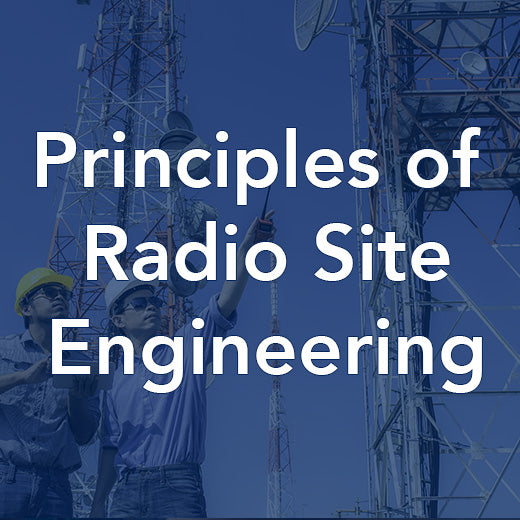
Principles of Radio Site Engineering
Our Principles of Radio Site Engineering training course is designed for individuals involved in radio site acquisition, planning, and build within the cellular industry who may not have a strong radio background. This comprehensive course covers essential radio theory and practical considerations for site build, making it ideal for those seeking an overview of telecoms transceiver equipment siting in radio sites. No prior knowledge of radio principles is required, although a technical background or the ability to comprehend technical information is advantageous. Led by expert trainer Les Granfield, who brings over 35 years of experience in the telecommunications industry, participants will delve into key topic areas such as radio wave propagation, antenna theory, cell site selection, indoor coverage challenges, radio systems interference, and more. With a focus on practical applications and real-world scenarios, this 2-day course consisting of 4 live online sessions (0900-1230) provides a valuable learning experience for professionals looking to enhance their understanding of radio site engineering principles and practices. Who would benefit Those requiring an overview of what is involved in the siting of telecoms transceiver equipment in radio sites. Prerequisites No prior knowledge of radio principles is required. A technical background or the ability to comprehend technical information is advantageous. Topic Areas Include Radio theory Radio wave propagation Antenna theory Considerations for siting antennas Transmission lines Considerations for installing transmission lines Cell dimensioning Cell site selection and positioning Indoor coverage challenges Indoor coverage using repeaters Indoor coverage using base stations Antenna systems for indoor coverage Radio systems interference Multi-site configurationsEarthing UK planning issues Trainer: Les Granfield Les is a technical trainer with 35 years of experience. His expertise extends across a wide range of telecommunications technologies. He specializes in GSM, GSM-R, ERTMS/ETCS, UMTS, LTE and 5G radio access networks, radio planning, radio access network optimization and Push to Talk over Cellular (PoC).
POA: Private Course
-
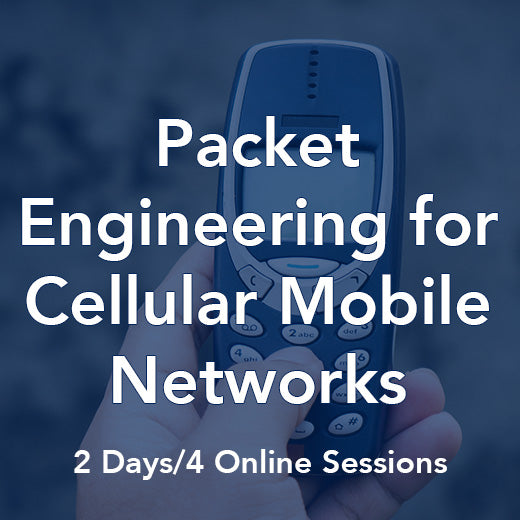
Packet Engineering for Cellular Mobile Networks
Course Code: MB1201 Course Summary This course provides an overview of the GPRS system beginning with an overall description of GPRS and progressing through its network architecture and operational aspects. The subsequent sections cover EDGE, the structure of the GPRS air interface and the basics of uplink and downlink packet transfer. Who would benefit Those already working in the GSM industry who require an overview of GPRS operation including its association with EDGE and how it interworks with 2.5G and 3G 3GPP based mobile networks. Prerequisites A good understanding of 3GPP’s GSM network, its architecture and operation would be beneficial together with an appreciation of packet-switching IP-based networks would be advantageous. Topic Areas Include GPRS network architecture The GPRS air interface and Dual Transfer Mode GPRS protocols Identities and addressing Mobility management and Dual Access Location management and Pooling Security and confidentiality Roaming Policy and Charging Content Access Controls The GERAN and Enhanced EDGE Packet-switched procedures 2.5G and 3G packet-switched interworking GPRS and IMS control GPRS and LTE interworking
POA: Private Course
-
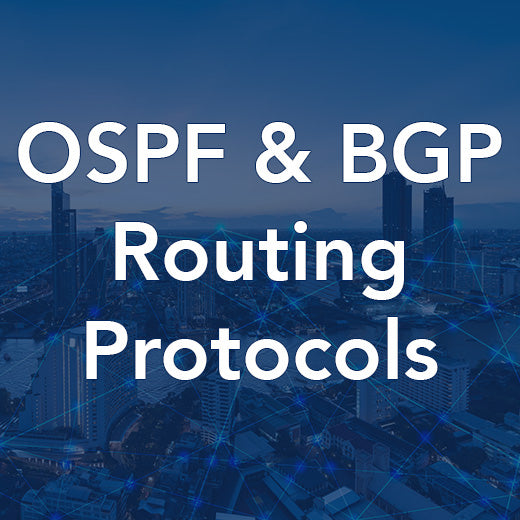
OSPF and BGP Routing Protocols
In this 2-day OSPF and BGP Routing Protocols training course, engineers will gain a practical understanding of OSPF and BGP through hands-on configuration of routers and switches. Participants will also learn how to investigate databases and routing tables to optimize network performance. This course is ideal for engineers who are transitioning into IP networking and need to have a solid operational understanding of devices like Ethernet switches and IP routers. Participants should have a basic knowledge of Ethernet switching and routing principles, including OSPF, as well as a good grasp of IP addressing. If you need to brush up on these prerequisites, consider attending our Wray Castle courses on Internetworking, Ethernet LANs and VLANs Principles, IP Addressing and Internet Protocols Principles, and Routing Protocol Principles. Topics covered in this training include the purpose of routing, equal cost multi-path routing, OSPF areas and metrics, OSPF database management, troubleshooting OSPF, BGP version 4, BGP redistribution, BGP path attributes, BGP filtering, and troubleshooting BGP. Join us for this comprehensive course to enhance your skills in OSPF and BGP routing protocols. Who would benefit Engineers who are moving into IP and need to have an operational understanding of typical devices such as Ethernet Switches and IP routers. Prerequisites A basic understanding of Ethernet switching and basics of routing such as OSPF together with a good understanding of IP addressing which can be obtained by attending our Wray Castle courses: ‘Internetworking, Ethernet LANs and VLANs Principles – IP1304’ and ‘IP Addressing and Internet Protocols Principles – IP1305’ and ‘Routing Protocol Principles – IP1306’. Topic Areas Include The Purpose of Routing The Routing Table Equal Cost Multi Path Redistribution OSPF Areas OSPF Metrics OSPF Database Troubleshooting OSPF OSPF Exercises Border Gateway Protocol Version 4 (BGP4) BGP redistribution BGP Path Attributes BGP Filtering BGP Troubleshooting BGP Exercise
POA: Private Course
-
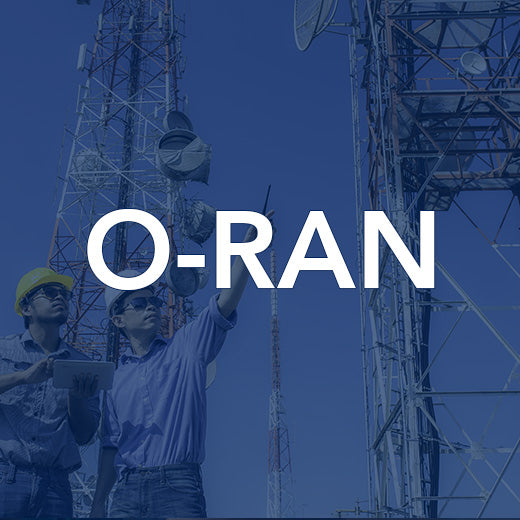
Open Radio Access Networks (Open RAN)
Open RAN is poised to revolutionize the Radio Access Networks (RAN) and the industry that supports it. The ORAN Alliance is paving the way for an open, intelligent, and fully interoperable architecture, aiming to foster a more competitive and innovative RAN supplier ecosystem. Telecom operators stand to benefit from Open RAN-compliant mobile networks, which enhance the efficiency and flexibility of RAN deployments and operations, crucial as networks transition through the phases of 5G deployment. Our Open RAN training course offers a comprehensive introduction to Open RAN, delving into its purpose, features, architecture, operation, and deployment options. Participants will also explore how Open RAN principles and its foundation in virtualization support the evolution to 5G, along with the impact of utilizing ORAN architecture on open and standardized interfaces. Ideal for individuals in technical roles within mobile network operators' Radio Access Network (RAN) environment, this course equips participants with the knowledge and skills needed to navigate the evolving landscape of Open RAN. A basic understanding of cellular radio networks from a radio network perspective is beneficial, as well as the ability to grasp technical subjects. Topics covered include Radio Access Networks, ORAN Players, 3GPP RAN Architecture for 5G, Open RAN Operations and Maintenance, and Whitebox Basestations. Join us for this two-day training course led by industry expert Les Granfield, a seasoned technical trainer with over 35 years of experience in various telecommunications technologies. Who would benefit Those in or entering technical roles in a mobile network operators Radio Access Network (RAN) environment. Prerequisites A basic understanding of cellular radio networks from a radio network perspective as well as the ability to comprehend technical subjects, would be useful. Topic Areas Include Radio Access Networks ORAN Players 3GPP RAN Architecture for 5G Open RAN, O-RAN Operations and Maintenance Whitebox Basestations Trainer: Les Granfield Les is a technical trainer with 35 years of experience. His expertise extends across a wide range of telecommunications technologies. He specializes in GSM, GSM-R, ERTMS/ETCS, UMTS and LTE radio access networks, radio planning, radio access network optimization and Push to Talk over Cellular (PoC).
POA: Private Course
-
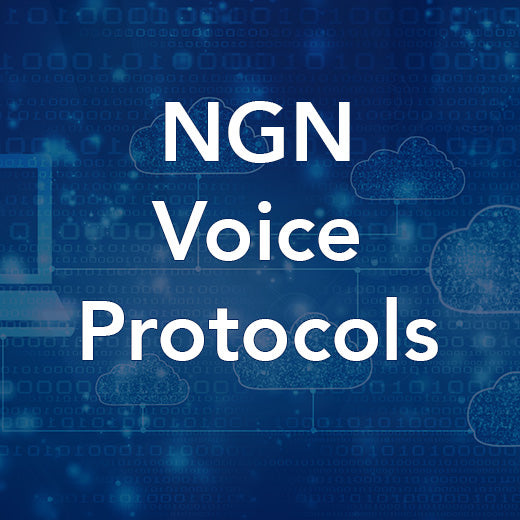
NGN Voice Protocols
Course Code: TY1202 Course Summary This course is intended for experienced telecoms engineers that wish to understand the workings of the protocols that are commonly used within Next Generation Networks (NGNs). The course takes a detailed look at real time signalling and transport protocols; it also looks at the protocols used to support legacy devices in the access and core network signalling such as POTS, ISDN and SS7. The course also looks in detail at the protocols supporting the new gateway devices. The course is backed up by an extensive set of exercises and the use of Wireshark. Who would benefit Those requiring a comprehensive understanding of the protocols used in an NGN for the support of voice services. Prerequisites A good understanding of legacy telecommunications networks, plus an understanding of IP networks and signal flows used in support of voice-related services. Topic Areas Include IP convergence Telecoms convergence and NGNs Telecoms (IP) scenarios Real time protocols SIP, RTP and RTCP H.323 call scenario The 3GPP IP Multimedia Subsystem The IMS registration process The IMS call signalling Softswitching architecture and protocols SIGTRAN in the access in support of POTS and ISDN SIGTRAN in the core in support of SS7 H.248 Megaco SIP-I Includes practical signalling exercises.
POA: Private Course
-

Next Generation Transmission
Course Code: TY2702 Course Summary This 3-day course reviews traditional approaches to transport services such as SDH and WDM and also discusses in detail alternative approaches including Carrier Ethernet and Pseudo Wire services that may be deployed in backhaul and core network applications. Who would benefit Transmission and network engineers who require an insight into modern digital transmission techniques used within fixed and mobile telecommunications networks. Prerequisites A good knowledge of fixed or mobile network transmission and switching architecture, services and applications and some knowledge of packet-switched networks and IP routing protocols. Topic Areas Include Introduction to transport networks Layer 2 virtual circuits – MPLS MPLS based VPNs MEF terminology for Carrier Ethernet Services Provider Bridge networks and Ethernet label-switching PBB service multiplexing Ethernet OAM – Connection Fault and Performance Management SDH Transport Networks SDH Multiplexing Structure and Protection Mechanisms Next Generation SDH review Wave Division Multiplexing (WDM) The Optical Transport Network, principles, multiplexing structures and operation MPLS in optical Networks, GMPLS and ASON Pseudo Wire (PW) principles, encapsulation and the control word Pseudo Wire types, IETF MPLS and TDM based PWs MPLS VLAN-to-VLAN and VPLS service examples
POA: Private Course
-

Network Functions Virtualisation (NFV)
This course is for network engineers who require a practical understanding of Network Functions Virtualisation (NFV). The course reviews the current NFV situation, introduces the leading bodies defining the standards and discusses the likely fields of application by examining use cases and existing Proof of Concepts (POCs). It discusses NFV from ETSI’s perspective, particularly in light of mobile operators’ intent to virtualise their IMS networks, as well as looking at how NFV relates to other techniques such as Cloud Computing and Software Defined Networking (SDN). Network Functions Virtualisation (NFV) is a crucial technology for network engineers looking to stay ahead in the rapidly evolving telecommunications industry. Our 2-day NFV Engineering Training Course is designed to provide a practical understanding of NFV, covering everything from the current NFV landscape to the standards set by leading bodies. Through a series of live online sessions, participants will explore real-world use cases, Proof of Concepts (POCs), and the relationship between NFV, Cloud Computing, and Software Defined Networking (SDN). This course is ideal for network, software, and IT engineers, as well as managers and consultants who need to grasp the deployment considerations associated with NFV. Participants should have a basic understanding of IP networking and routing, with some familiarity with modern telecommunications networks. Topics covered include NFV Functional Architecture, NFV Infrastructure (NFVI), NFV Management and Orchestration (MANO), SDN and NFV integration, and ETSI Proof of Concept Projects. Don't miss this opportunity to enhance your skills and stay competitive in the dynamic world of NFV engineering. Who would benefit This course is suitable for those who need an understanding of NFV and the deployment considerations associated with NFV; including network, software and IT engineers, as well as managers and consultants. Prerequisites Delegates should have experience or an understanding of the principles or IP networking and routing and preferably some understanding of modern telecommunication’s networks. Topic Areas Include Drivers for Change NFV Functional Architecture NFV Infrastructure (NFVI) NFV Management and Orchestration (MANO) Software Defined Networks (SDN) and NFV NFV ETSI Proof of Concept Projects
POA: Private Course
-

Multi Protocol Label Switching
Our Multi Protocol Label Switching (MPLS) training course is designed to provide a comprehensive introduction to MPLS, covering topics such as MPLS Label Switched Paths (LSPs) and MPLS Virtual Private Network (VPN) connections. This 1-day course is ideal for engineers working with MPLS in various applications, from IP VPNs to GMPLS in transmission networks. Participants will gain a solid understanding of MPLS, including its motivation, applications, packet forwarding, and architecture of MPLS-based IP-VPNs. The course also covers topics such as Forward Equivalence Class (FEC), MPLS label operations, Label Distribution Protocol (LDP), Virtual Private Networks (VPN), and MP-BGP configuration. Prerequisites for this course include a good understanding of IP networking and familiarity with OSPF and BGP, which can be obtained by attending our ‘Routing Protocol Principles – IP1306’ course. Join us for this interactive training session to enhance your knowledge and skills in Multi Protocol Label Switching. Who would benefit Engineers are finding MPLS is a variety of different applications from IP VPNs, through to GMPLS in transmission networks. As so this 1-day course will provide an excellent introduction to the topic. Prerequisites A good understanding of IP networking is essential as well as an understanding of OSPF and BGP which can be obtained from attending our ‘Routing Protocol Principles – IP1306’ course. Topic Areas Include Motivation for MPLS MPLS applications view MPLS packet forwarding Architecture of MPLS-based IP-VPNs Forward Equivalence Class (FEC) MPLS label operations Special case labels Label Distribution Protocol (LDP) Virtual Private Networks (VPN) MP-BGP configuration
POA: Private Course
-
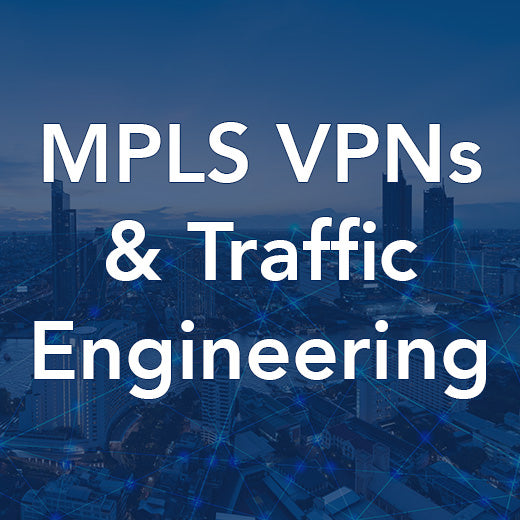
MPLS VPNs and Traffic Engineering
This 2-day MPLS VPNs and Traffic Engineering training course offered by Wray Castle provides a practical and in-depth look at Multi Protocol Label Switching (MPLS) technology. From understanding Label Switched Paths to configuring Virtual Private Network (VPN) connections and exploring MPLS Traffic Engineering, this course covers all the essential aspects of MPLS implementation in networks. Engineers who work with MPLS VPNs or Traffic Engineering services will greatly benefit from this course, gaining a comprehensive understanding of how MPLS is configured and operated in real-world networks. Participants are required to have a good grounding in MPLS and VPN principles, which can be obtained by attending Wray Castle's course on 'Multi Protocol Label Switching'. Topics covered in this course include VPN (Virtual Private Networks), MPLS VPN operation, MP-BGP configuration, building different VPN types using route targets, MPLS traffic engineering, MPLS-TE trunk attributes, and fast restoration of an LSP using RSVP-TE. By the end of the training, participants will have the knowledge and skills to effectively configure and manage MPLS VPNs and Traffic Engineering in their networks. Who would benefit Engineers who would benefit from a practical understanding of how MPLS is configured in networks. Especially those that have to work with MPLS VPNs or Traffic Engineering services. Prerequisites A good grounding in MPLS and VPN principles as obtained by attending our Wray Castle course ‘Multi Protocol Label Switching – IP1307’. Topic Areas Include VPN (Virtual Private Networks) MPLS-based IP-VPN motivation MPLS VPN operation Configuration of VPN sites MP-BGP configuration MP-BGP updates Building different VPN types using route targets Route reflector MPLS traffic engineering MPLS-TE trunk attributes MPLS-TE basic operations Fast restoration of an LSP using RSVP-TE
POA: Private Course
-
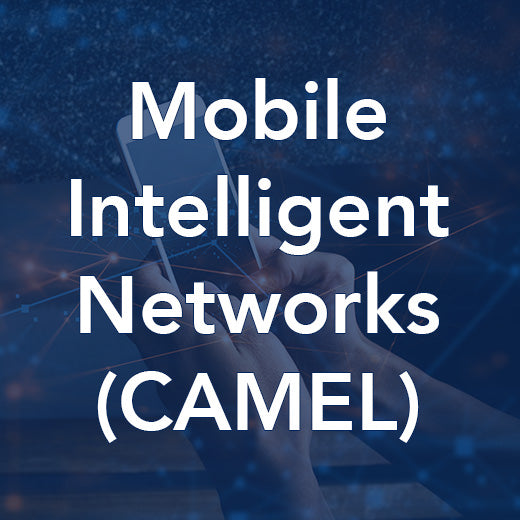
Mobile Intelligent Networks (CAMEL)
Our Mobile Intelligent Networks CAMEL Training Course (Course Code: MB90) is designed to provide an in-depth understanding of Intelligent Network (IN) concepts, specifically focusing on IN Capability Set 1 (IN-CS1) and its interworking with CAMEL and mobile networks. This course covers a range of topics including Basic Call State Models (BCSM), Detection Points (DP) types and arming, CAMEL Phases 1, 2, and 3 features, operation and procedures, as well as CAMEL interaction with both circuit-switched (CS) and packet-switched (PS) mobile networks. Ideal for individuals looking to implement value-added services within mobile networks using CAMEL technology, this course requires participants to have a good understanding of technical language and concepts, as well as a solid knowledge of GSM operation. Familiarity with SS7 is also beneficial for a comprehensive learning experience. Expand your expertise in Intelligent Network concepts and CAMEL technology with our comprehensive training course. Gain insights into CAMEL Information Flows, charging functions, pre-paid solutions, real-time charging, and analysis of CAMEL signalling. Whether you are a telecom professional looking to advance your career or a company seeking to implement innovative services in mobile networks, this course will equip you with the necessary skills and knowledge to succeed in the dynamic world of mobile intelligent networks. Who would benefit Those needing to know how value-added services can be implemented within mobile networks using CAMEL technology. Prerequisites An ability to understand technical language and concepts, and a good knowledge of GSM operation. Knowledge of SS7 is also beneficial. Topic Areas Include Intelligent Network Concepts Intelligent Network – Capability Set 1 Basic Call State Models (BCSM) Detection Points (DP) types and arming CAMEL Phases 1, 2 and 3 features, operation and procedures BCSMs, DPs and CAMEL Subscription Information CAMEL Information Flows CAMEL Interaction with CS and PS mobile networks CAMEL Interaction with CS and PS mobile networks Charging functions Pre-paid solutions and real-time charging Analysis of CAMEL signalling
POA: Private Course
-

Mobile Backhaul for 3G and 4G Networks
Our 2-day Mobile Backhaul for 3G and 4G Networks training course offers a comprehensive overview of the technologies essential for supporting the backhaul requirements of evolved 3G HSPA and next-generation 4G LTE access networks. Participants will delve into discussions on backhaul architecture, Carrier Ethernet, MPLS, fibre-optic transmission, packet-based microwave, and other high-capacity backhaul technologies. This course is ideal for engineering and technical management professionals involved in the commissioning, design, deployment, or operation of mobile backhaul networks. Participants will gain insights into backhaul concepts, transport network layered architectures, RAN architectures and requirements, industry forums, and various backhaul options at layers 1, 2, and 3. Topics covered include Ethernet, VLANs, Q-in-Q VLAN stacking, MPLS, IP RAN in HSPA and LTE, synchronization, redundancy, security options, NGMN models, and VLAN traffic forwarding examples for Ethernet-based RANs. Prior knowledge of mobile network architecture and legacy backhaul technologies like TDM or ATM would be beneficial for this course. Join us for a deep dive into mobile backhaul technologies and enhance your expertise in supporting advanced mobile networks. Who would benefit This course is suitable for engineering and technical management staff who are involved in the commissioning, design, deployment or operation of mobile backhaul networks. Prerequisites An understanding of mobile network architecture and operation would be beneficial as would an appreciation of legacy backhaul technologies such as TDM or ATM. Topic Areas Include What is backhaul? Transport network layered architectures Radio Access Network (RAN) architectures and requirements Industry forums Layer 1 backhaul options Backhaul architecture models Next generation SDH, OTN and packet-based microwave Layer 2 backhaul options Ethernet and 802.1Q VLANs Q-in-Q VLAN stacking Carrier Ethernet MPLS and pseudowires Layer 3 backhaul options IP RAN in HSPA and LTE Synchronization (NTPv4, IEEE1588v2/PTP, Sync-E) Redundancy (MSTP, G.8031/8032) Security options (IPsec, Security Gateway) Next Generation Mobile Network (NGMN) models VLAN traffic forwarding examples for Ethernet-based RANs
POA: Private Course
-
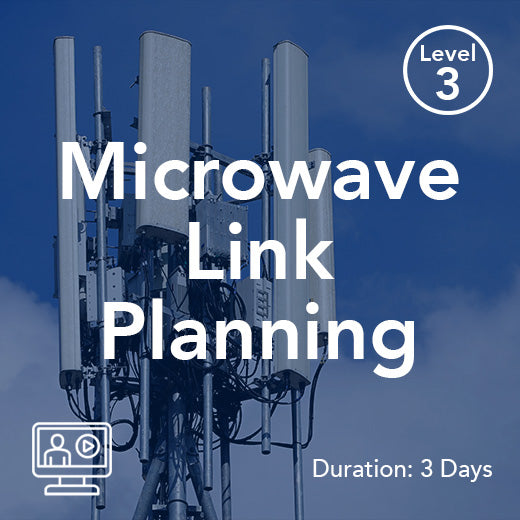
Microwave Link Planning
Course Code: RP1601 The course covers all of the essential aspects of planning point-to-point microwave link systems, from conception to commissioning. Who would benefit Those involved in the specification, planning and maintenance of fixed microwave radio transmission, backhaul and access links. Prerequisites A good knowledge of radio principles, or a background in telecommunications engineering, or attendance on the Radio Principles course (RP1301). Topic Areas Include ITU-R and CEPT recommendations ETSI standards Spectrum management and channel plans Frequency assignment Digital radio performance characteristics Noise and interference in radio systems Reliability, availability and performance objectives Microwave antennas and feeders Radiation Pattern Envelopes (RPEs) Refraction, k-factor, reflection and diffraction Path profiling and Fresnel zone clearance Power budgets Rain and Multipath/Dispersive fade margins Dimensioning space and frequency diversity Interference management Practical link planning exercises Practical exercises, including design of a fixed link transmission network. Trainer: Karl van Heeswijk Karl is an experienced training specialist in radio theory, point-to-point, point-to-multipoint and mobile systems.
POA: Private Course
-
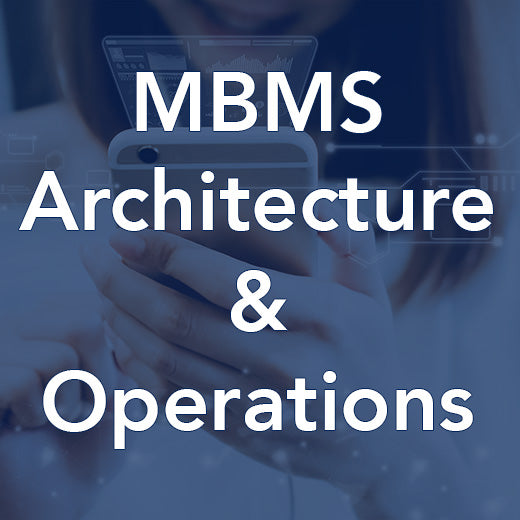
MBMS Architecture and Operation
The MBMS Architecture and Operation training course to gain a comprehensive understanding of the architecture and operation of Multimedia Broadcast Multicast Service (MBMS) technology. This course is designed to provide you with in-depth knowledge of MBMS system architecture, eMBMS air interface, and MBMS operation. Our training course covers essential topics such as introduction to MBMS system architecture, eMBMS air interface, and MBMS operation. You will learn about the technical aspects of MBMS technology, including how it enables efficient delivery of multimedia content to multiple users simultaneously. By the end of the course, you will have a solid understanding of MBMS technology and be equipped with the knowledge to implement it effectively in your projects. Don't miss this opportunity to expand your expertise in MBMS architecture and operation with our comprehensive training course. Course Contents Introduction and System Architecture eMBMS Air Interface MBMS Operation
POA: Private Course
-
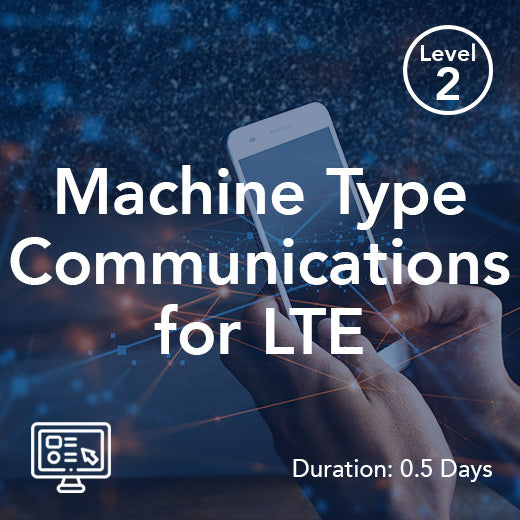
Machine Type Communications for LTE
Machine Type Communications for LTE is a crucial training course designed to provide participants with a comprehensive understanding of LTE technologies for the Internet of Things (IoT). Participants will be introduced to LTE and the Internet of Things, gaining insights into the latest advancements and applications in machine type communications. The course covers essential topics such as LTE technologies for the IoT, equipping attendees with the necessary expertise to navigate the complexities of this cutting-edge technology. By enrolling in this training course, participants can stay ahead of the curve and gain a competitive edge in the dynamic world of LTE and machine type communications. Whether you are a seasoned professional or new to the field, this course offers valuable insights and practical knowledge to help you succeed in your career. Course Contents Introduction to LTE and the Internet of Things (IoT) LTE Technologies for the IoT
POA: Private Course
-
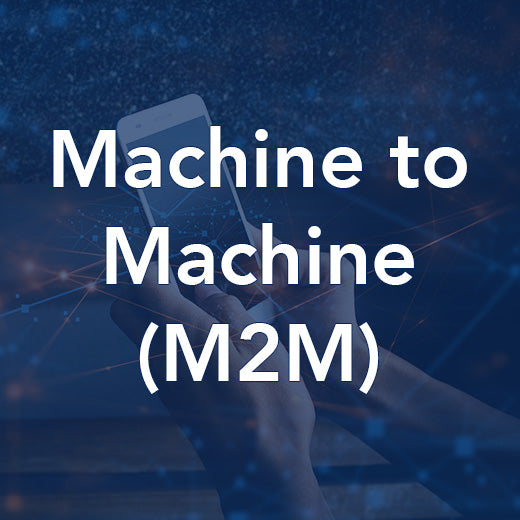
Machine to Machine (M2M)
This course covers the following topics: Overview of M2M; Architecture of M2M; M2M Applications; M2M Networks and Communication Technologies; M2M Ecosystem; M2M Market and Business Dynamics; M2M Security; M2M Standardization and Regulatory Issues; M2M Challenges and Issues and M2M Applications and Case Studies. Machine Type Communications for LTE is a crucial training course designed to provide participants with a comprehensive understanding of LTE technologies for the Internet of Things (IoT). Participants will be introduced to LTE and the Internet of Things, gaining insights into the latest advancements and applications in machine type communications. The course covers essential topics such as LTE technologies for the IoT, equipping attendees with the necessary expertise to navigate the complexities of this cutting-edge technology. By enrolling in this training course, participants can stay ahead of the curve and gain a competitive edge in the dynamic world of LTE and machine type communications. Whether you are a seasoned professional or new to the field, this course offers valuable insights and practical knowledge to help you succeed in your career. Who would benefit This course is designed for telecoms professionals who are involved in the planning, design, implementation, operations and management of M2M networks. This course is built in accordance with ETSI/3GPP, OMA and the Internet of Things Architecture (IOT- A) and so is primarily aimed at cellular implementations of M2M. Prerequisites This course comprehensively covers the main topic areas of M2M and as such there are no real prerequisites although a good understanding of telecoms networks and IP routing would be beneficial. Topic Areas Include Introduction to M2M M2M Applications M2M Standardization M2M Protocols and Networking Technologies M2M Security Cellular M2M M2M Challenges and Issues M2M Ecosystem and Market
POA: Private Course
-
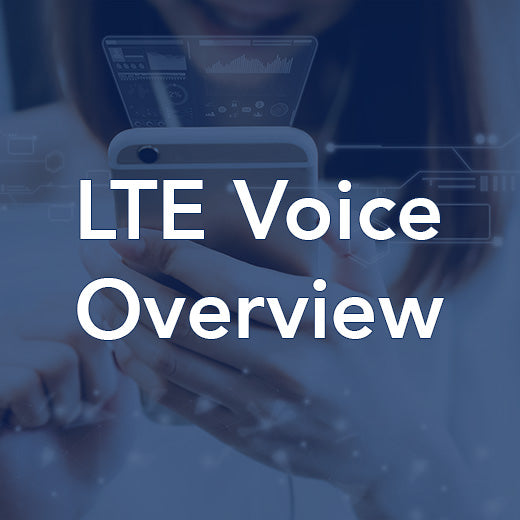
LTE Voice Overview
LTE Voice Overview Training Course provides a comprehensive technical introduction to LTE voice methods. This course is designed for engineering and technical management professionals who need a clear understanding of the options available for delivering voice services over LTE networks. Participants will gain insight into the architecture, protocols, and codecs for Voice over LTE (VoLTE), as well as learn about CS fallback, IMS, SRVCC, and other key topics related to LTE voice technology. Prerequisites for attending this course include prior completion of the LTE Engineering Overview course or equivalent basic knowledge of LTE. However, a recap of fundamental LTE concepts and architecture is provided at the beginning of the training session. By the end of the 1-day course, participants will have a solid understanding of LTE voice technologies and procedures, including power-on, registration, call setup, SMS, emergency calls, and Voice over Wi-Fi. Enhance your expertise in LTE voice with this informative and practical training course. Who would benefit This course is suitable for engineering and technical management staff who require a concise introduction to the options that exist in LTE for the delivery of voice services. Prerequisites Attendance on this course assumes previous attendance on the LTE Engineering Overview course (LT3600) or equivalent basic LTE knowledge (although a recap of basic LTE architecture and concepts is provided at the start of the course). Topic Areas Include Technical overview of LTE Introduction to the options for LTE voice Architecture and operation of CS fallback Overview of the IMS System architecture, protocols and codecs for Voice over LTE (VoLTE) VoLTE procedures for power-on, registration and call setup Single Radio Voice Call Continuity (SRVCC) Additional topics such as SMS, emergency calls and Voice over Wi-Fi
POA: Private Course
-
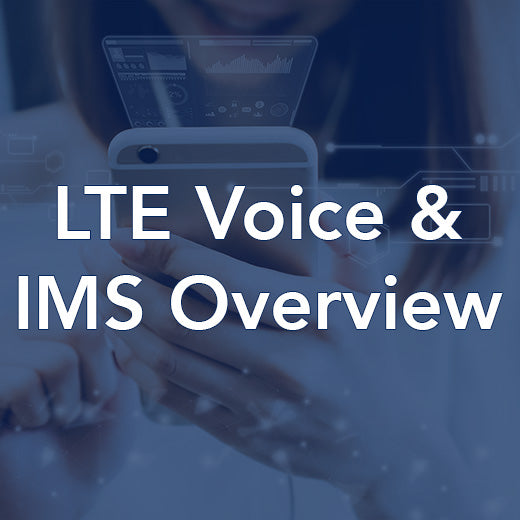
LTE Voice and IMS Overview
Our LTE Voice and IMS Overview training course is designed to provide a comprehensive technical understanding of the IP Multimedia Subsystem (IMS) and how it is utilized for delivering VoIP services over LTE networks. This 3-day course is ideal for engineering and technical management professionals seeking in-depth knowledge of LTE voice delivery and real-time traffic handling. Participants will gain insights into various topics including LTE technical overview, SIP and SDP protocols, IMS architecture and operation, VoLTE system architecture, protocols, services, and codecs, as well as emergency call procedures and Voice over Wi-Fi. Prerequisites for this course include prior attendance of our LTE Engineering Overview course or equivalent basic LTE knowledge, along with a working understanding of IP. By enrolling in our LTE Voice and IMS Overview training, participants will enhance their expertise in LTE voice delivery mechanisms and gain valuable insights into the operation of the IP Multimedia Subsystem. Stay ahead in the rapidly evolving telecommunications industry with our specialized training designed to equip you with the necessary skills and knowledge for successful implementation of VoIP services over LTE networks. Who would benefit This course is suitable for engineering and technical management staff who require a technical description of the options that exist in LTE and the IP multimedia subsystem for delivering voice and other real-time traffic types, that would traditionally have been carried by Circuit-Switched (CS) technologies. Prerequisites Attendance on this course assumes previous attendance on the LTE Engineering Overview course (LT3600) or equivalent basic LTE knowledge (although a recap of basic LTE architecture and concepts is provided at the start of the course) and also assumes a working knowledge of IP. Topic Areas Include Technical overview of LTE Introduction to the options for LTE voice Session Initiation Protocol (SIP) Session Description Protocol (SDP) Architecture and operation of the IP Multimedia Subsystem (IMS) Control and user plane functions of the IMS Service delivery in the IMS System architecture for Voice over LTE (VoLTE) VoLTE protocols, services and codecs VoLTE power-on and registration procedures VoLTE call setup procedures Access domain selection Single Radio Voice Call Continuity (SRVCC) Delivery of SMS messages over the IMS VoLTE emergency calls Voice over Wi-Fi
POA: Private Course
-

LTE Voice - VoLTE
Our LTE Voice (VoLTE) training course is designed to provide a comprehensive technical understanding of how VoIP services are delivered using LTE and the IP Multimedia Subsystem. This course is ideal for engineering and technical management professionals looking to gain in-depth knowledge of the options available in LTE for delivering voice and real-time traffic through VoIP. Topics covered in this course include a technical overview of LTE, introduction to LTE voice options, IP Multimedia Subsystem (IMS) overview, Voice over LTE (VoLTE) system architecture, VoLTE protocols, services, and codecs, VoLTE call setup procedures, SRVCC, SMS delivery over IMS, VoLTE emergency calls, and Voice over Wi-Fi. Whether you're new to LTE or looking to enhance your existing knowledge, our 2-day course provide a detailed exploration of VoLTE technology. Join us to expand your expertise and stay ahead in the rapidly evolving world of telecommunications. Who would benefit This course is suitable for engineering and technical management staff who require a technical description of the options that exist in LTE for delivering voice and other real-time traffic types by means of VoIP. Prerequisites Attendance on this course assumes previous attendance on the LTE Engineering Overview course (LT3600) or equivalent basic LTE knowledge (although a recap of basic LTE architecture and concepts is provided at the start of the course) and also assumes a working knowledge of IP. Topic Areas Include Technical overview of LTE Introduction to the options for LTE voice Technical overview of the IP Multimedia Subsystem (IMS) System architecture for Voice over LTE (VoLTE) VoLTE protocols, services and codecs VoLTE power-on and registration procedures VoLTE call setup procedures Access domain selection Single Radio Voice Call Continuity (SRVCC) Delivery of SMS messages over the IMS VoLTE emergency calls Voice over Wi-Fi Also available as a Self-Study Online Learning Programme, learn more.
POA: Private Course
-
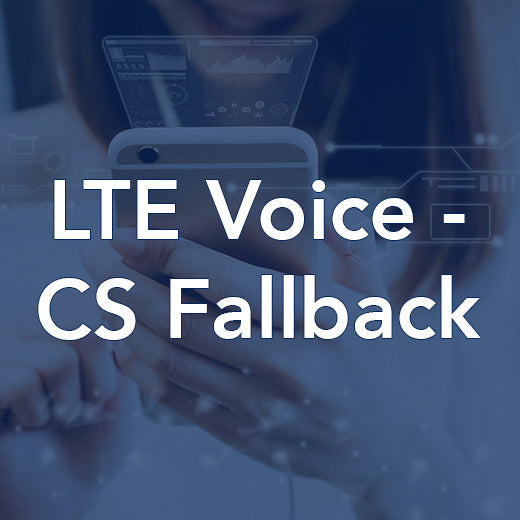
LTE Voice - CS Fallback
This LTE Voice CS Fallback training course is designed to provide a comprehensive technical understanding of how CS fallback is used to deliver LTE voice services. Participants will gain insights into the technical aspects of CS fallback architecture, SGs Application Protocol (SGsAP), combined attach procedures, call setup options, roaming retry, SMS message delivery, and more. Ideal for engineering and technical management professionals seeking to deepen their knowledge of LTE voice delivery options, this course is a valuable resource for those looking to enhance their skills in this specialized area. Prior attendance on the LTE Engineering Overview course (LT3600) or equivalent basic LTE knowledge is recommended, along with a working knowledge of IP. Join us for this 1-day course where industry experts will guide you through the intricacies of LTE voice CS fallback. Enhance your technical expertise and stay ahead in the rapidly evolving field of LTE technology with this insightful and practical training opportunity. Who would benefit This course is suitable for engineering and technical management staff who require a technical description of the options that exist in LTE for delivering voice and other real-time traffic types by means of CS fallback. Prerequisites Attendance on this course assumes previous attendance on the LTE Engineering Overview course (LT3600) or equivalent basic LTE knowledge (although a recap of basic LTE architecture and concepts is provided at the start of the course) and also assumes a working knowledge of IP. Topic Areas Include Technical overview of LTE Introduction to the options for LTE voice CS fallback architecture SGs Application Protocol (SGsAP) Combined attach procedure Alignment of tracking and location areas CS fallback call setup options Mobile-originated and mobile-terminated call setup procedures Roaming retry and roaming forwarding Delivery of SMS messages over the SGs interface
POA: Private Course
-
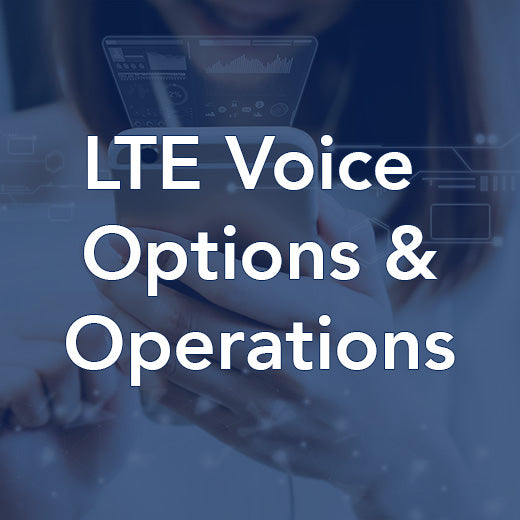
LTE Voice Options and Operations
Our LTE Voice Options and Operations Training Course (Course Code: LT1002) is designed to provide a comprehensive technical understanding of the methods available for delivering voice services over LTE networks. This 3-day course is ideal for engineering and technical management professionals seeking in-depth knowledge of LTE voice delivery and real-time traffic handling. Participants will gain insight into LTE voice options, CS fallback architecture, IMS, VoLTE protocols, SRVCC, voice over Wi-Fi, and more. Prerequisites for this course include prior attendance at the LTE Engineering Overview course (LT3600) or equivalent basic LTE knowledge, as well as a working understanding of IP. Our expert instructors will provide a recap of basic LTE concepts at the beginning of the course to ensure all participants are on the same page. By the end of the training, attendees will have a solid grasp of LTE voice delivery methods and the technical intricacies involved in offering voice services over LTE networks. Join us for our LTE Voice Options and Operations Training Course to enhance your technical skills and stay ahead in the rapidly evolving world of telecommunications. Gain valuable insights into the latest advancements in LTE voice technology and learn how to effectively implement voice services over LTE networks. Don't miss this opportunity to expand your knowledge and expertise in LTE voice operations. Who would benefit This course is suitable for engineering and technical management staff who require a technical description of the options that exist in LTE for delivering voice and other real-time traffic types, that would traditionally have been carried by Circuit Switched (CS) technologies. Prerequisites Attendance on this course assumes previous attendance on the LTE Engineering Overview course (LT3600) or equivalent basic LTE knowledge (although a recap of basic LTE architecture and concepts is provided at the start of the course) and also assumes a working knowledge of IP. Topic Areas Include Technical overview of LTE Introduction to the options for LTE voice CS fallback architecture and protocols CS fallback attach and call setup procedures Technical overview of the IMS System architecture for Voice over LTE (VoLTE) VoLTE protocols, services and codecs VoLTE power-on and registration procedures VoLTE call setup procedures Access domain selection Single Radio Voice Call Continuity (SRVCC) Delivery of SMS messages over the IMS VoLTE emergency calls Voice over Wi-Fi [Optional] Voice over LTE by Generic Access (VoLGA)
POA: Private Course
-
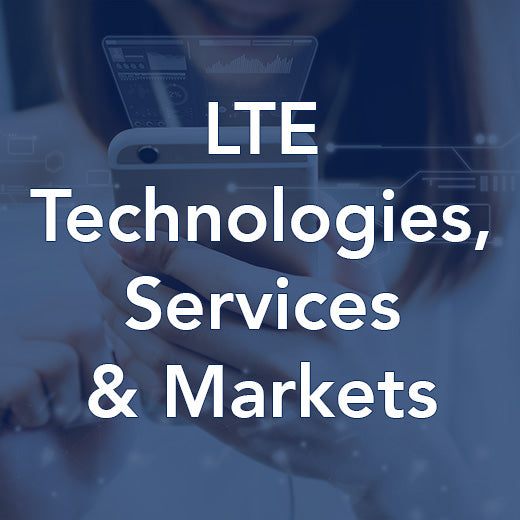
LTE Technologies, Services and Markets
LTE technologies are at the forefront of the telecommunications industry, offering faster speeds and more reliable connections for both mobile and fixed services. Our LTE Technologies, Services, and Markets training course (Course Code: LT3601) provides a comprehensive overview of the Evolved Packet System (EPS) that makes up the LTE system. This course is designed for non-technical professionals who are new to or already working in the telecommunications sector, offering a non-technical introduction to LTE and its place in the evolving telecom market. With 2 live online sessions spread over 1 day, participants will gain an understanding of LTE services, market segments, target users, key features, network architecture, and technology roadmaps toward LTE. No technical knowledge is assumed, making this course accessible to individuals with varying levels of experience in the industry. By exploring the applications and synergies of LTE technology, participants will be equipped with the knowledge needed to navigate the dynamic landscape of LTE services and markets. Join us for this informative training course to stay ahead in the telecommunications industry and gain insights into the advancements and opportunities offered by LTE technologies. Whether you are looking to expand your knowledge or enhance your skill set, this course will provide you with valuable insights into the world of LTE and its impact on the telecommunications sector. Who would benefit This course is intended for non-technical professionals either new to, or already working in, the mobile or fixed telecommunications sector. Prerequisites No technical knowledge is assumed but some familiarity with the telecommunications industry would be beneficial. Topic Areas Include The evolving mobile telecommunications market LTE services and service aims LTE market segments LTE target users Key features of LTE LTE network terminology E-UTRAN architecture Evolved Packet Core (EPC) architecture Why all-IP? LTE for fixed and mobile services Technology roadmaps toward LTE LTE timescales Applications for LTE LTE technology synergies
POA: Private Course
-
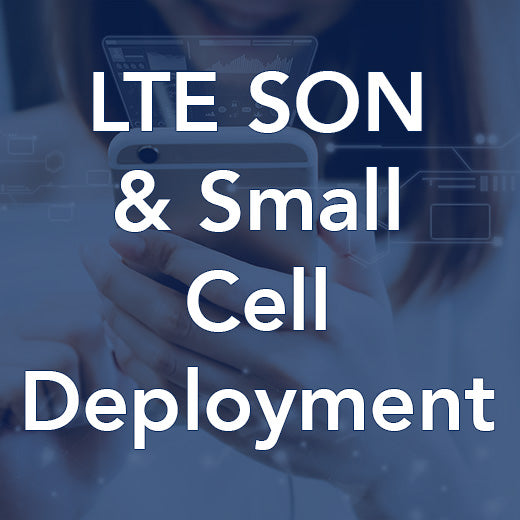
LTE SON and Small Cell Deployment
LTE, SON, and Small Cell Deployment Training Course is a comprehensive program designed to explore the intricacies of Self-Organizing Networks (SON) and the deployment of small cells and femtocells. This course delves into key features and procedures that enable self-configuration within a SON, as well as addressing issues related to femtocell deployment such as interference management and control techniques. Ideal for professionals working in planning-related roles for network operators or as consultants, this course assumes existing knowledge of cell planning principles in a mobile environment. Participants will benefit from a deep dive into topics like SON drivers, automatic neighbor relation (ANR), mobility robustness optimization, and deployment configurations. By the end of this 1-day course consisting of 2 live online sessions, attendees will have a solid understanding of the complexities and best practices surrounding LTE, SON, and small cell deployment. Enhance your expertise in small cell deployment and stay ahead in the ever-evolving telecommunications industry with our LTE, SON, and Small Cell Deployment Training Course. Gain valuable insights into self-configuring networks, interference management, and deployment configurations to optimize network performance and efficiency. Join us for 2 live online sessions and deepen your knowledge of SON drivers, automatic PCI configuration, and mobility load balancing. Don't miss this opportunity to advance your skills and propel your career in mobile network planning and deployment. Who would benefit This course would benefit those with a keen interest in the issues surrounding the deployment of small cells and femtocells in particular. This might include those working in planning-related roles for network operators or as individual consultants. Prerequisites This course assumes existing knowledge of cell planning principles in a mobile environment. Topic Areas Include SON – drivers Self-configuration Automatic Neighbour Relation (ANR) Automatic PCI configuration Inter-Cell interference Co-ordination (ISIC) Mobility robustness optimization Mobility load balancing Energy saving Deployment configurations Control of downlink interference
POA: Private Course
-
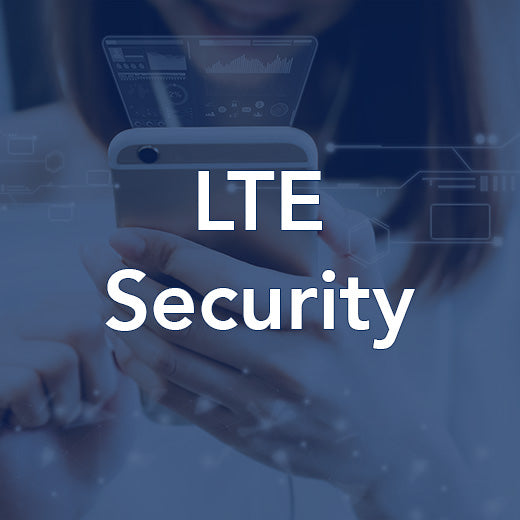
LTE Security
Course Code: LT1303 Course Summary This course provides a detailed overview of the security environment developed for LTE networks, including the LTE Authentication and Key Agreement (AKA) procedures and the provisions for Non-Access Stratum, Access Stratum, Access Network and Core Network security. Who would benefit This course is designed for engineers, managers and other personnel who have a need to acquire a technical overview of the security environment employed within LTE networks. It will also be of benefit to those in the wider technical community who have a need to understand the security protocols employed by cellular networks. Prerequisites Attendance on this course assumes previous attendance on the LTE Engineering Overview course (LT3600) or equivalent basic LTE knowledge. An understanding of legacy 2G and 3G security procedures would be an advantage as would a basic understanding of LTE network architecture and functionality. Topic Areas Include Security threats and mitigations 3GPP security strata and the LTE security architecture Non-Access Stratum, Access Stratum, Access Network and Core Network Security Overall AKA process Security contexts Subscriber and UE identifiers Authentication process, vectors and algorithms Key agreement procedures AKA keys and algorithms Key hierarchy, key sets and key set identifiers Key derivation functions KeNB chaining and the NH (Next Hop) key EEA and EIA security algorithms Security procedures
POA: Private Course
-
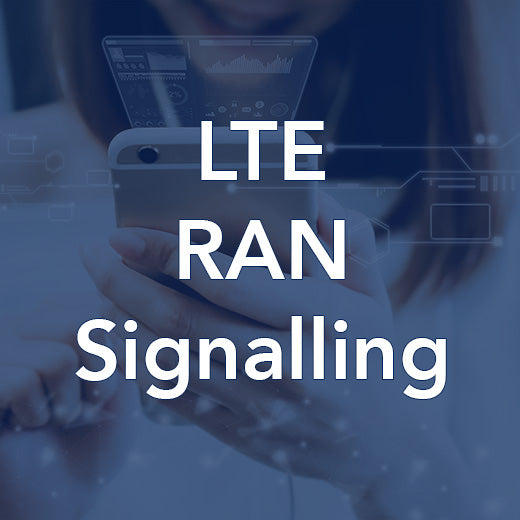
LTE RAN Signalling
Our LTE RAN Signalling Training Course is designed for engineers involved in equipment design, operation, optimization, or monitoring of the LTE Radio Access Network. This 1-day course provides participants with a comprehensive understanding of LTE signalling protocols and interfaces. Participants are expected to have familiarity with LTE and the LTE RAN, which can be gained from attending our LTE Engineering Overview (LT3600) course. Experience with 2G or 3G air interface signalling systems would also be beneficial. Please note that this course is not suitable for those who have attended the LTE RAN course (LT3603) as it covers similar signalling topics. The course covers essential topics such as LTE Signalling Protocols and Interfaces, S1 Interface Messages and Procedures, and X2 Interface Messages and Procedures. By the end of the training, participants will have a solid foundation in LTE RAN signalling, enabling them to effectively design, operate, optimize, and monitor LTE networks. Who Would Benefit Engineers involved with equipment design, operation, optimization or monitoring of the LTE Radio Access Network. Prerequisites Familiarity with LTE and the LTE RAN is assumed and can be gained from attending the LTE Engineering Overview (LT3600) course. Experience of 2G or 3G air interface signalling systems would be beneficial. This course is not suitable for those who have attended the LTE RAN course (LT3603) as it covers similar signalling topics. Contents LTE Signalling Protocols and Interfaces S1 Interface Messages and Procedures X2 Interface Messages and Procedures
POA: Private Course





























































